
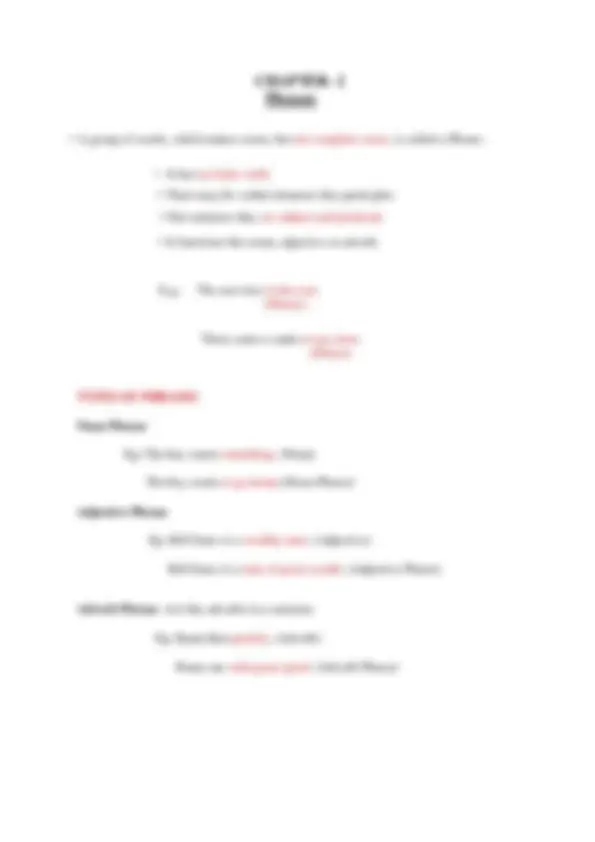
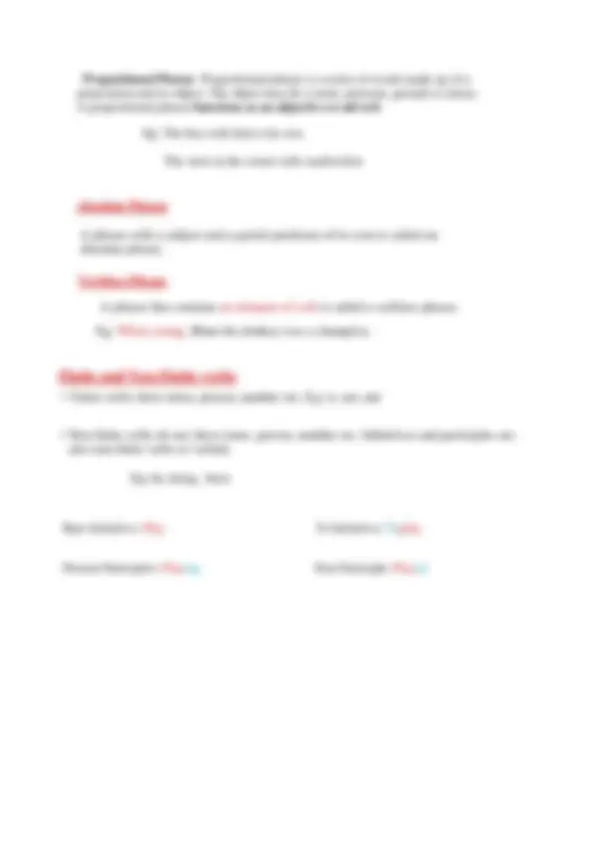
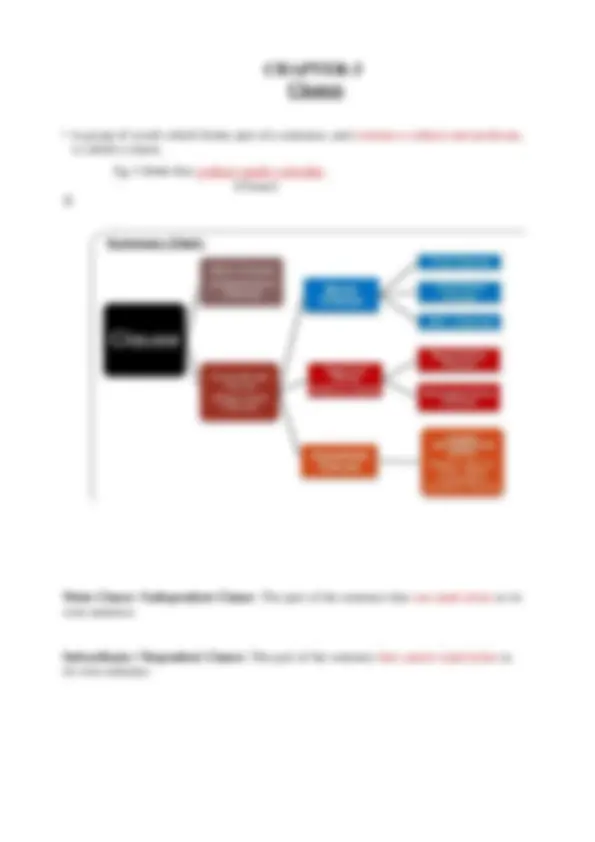

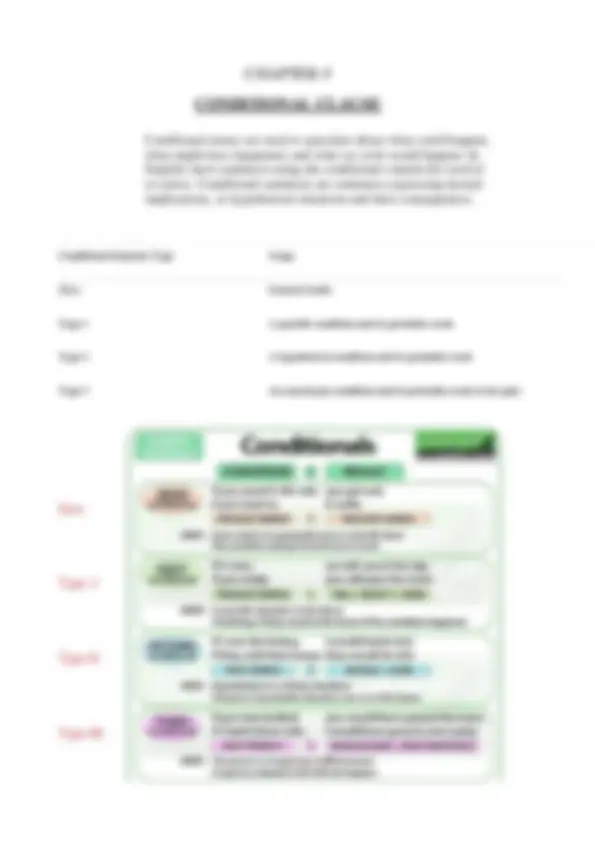
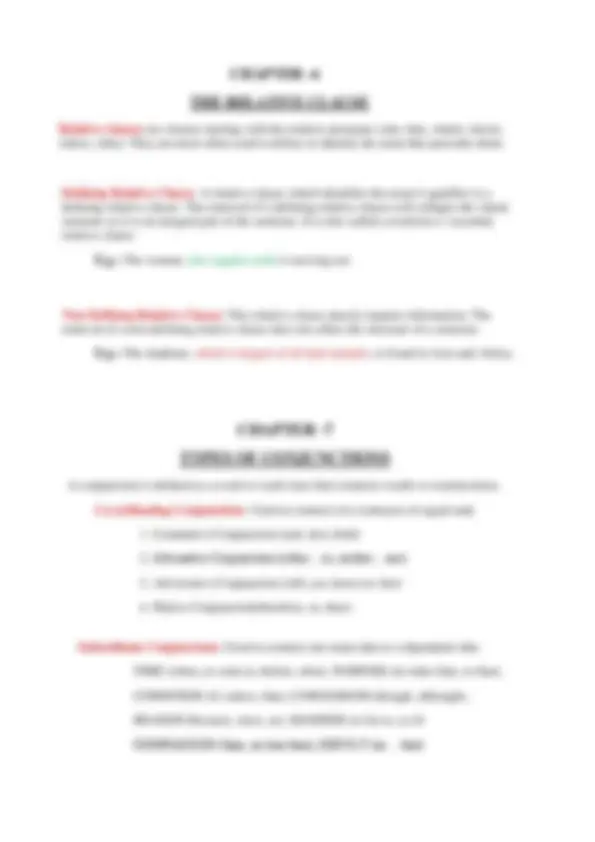
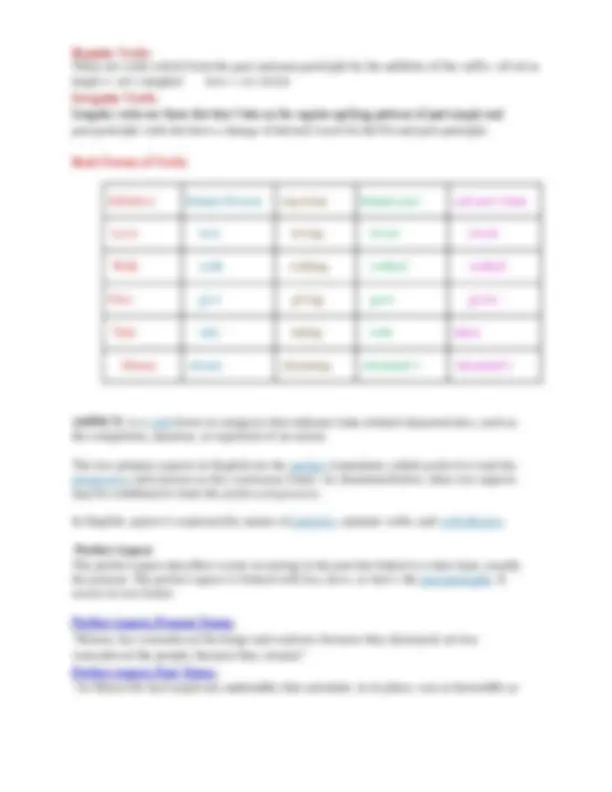

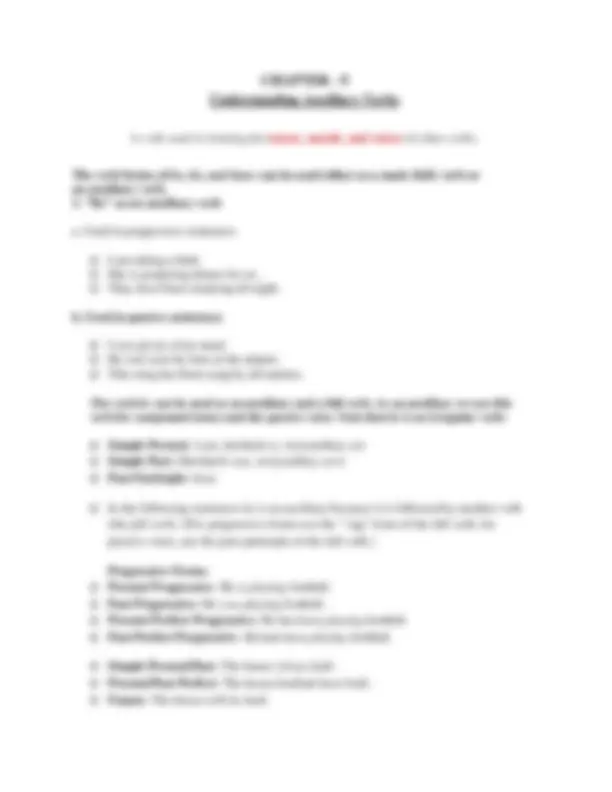
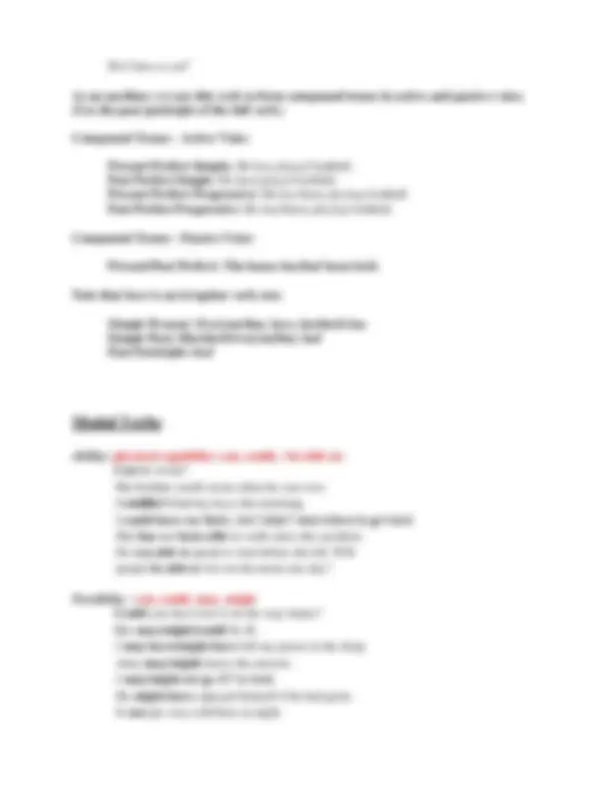
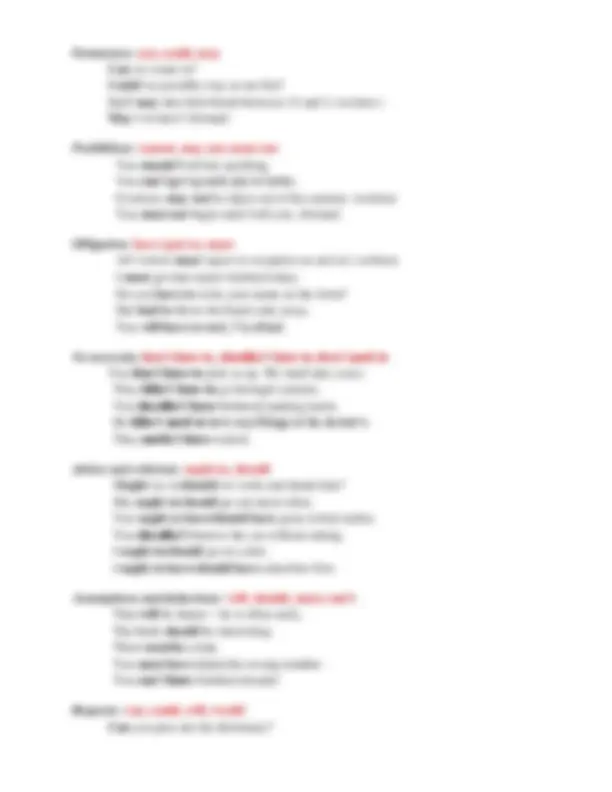
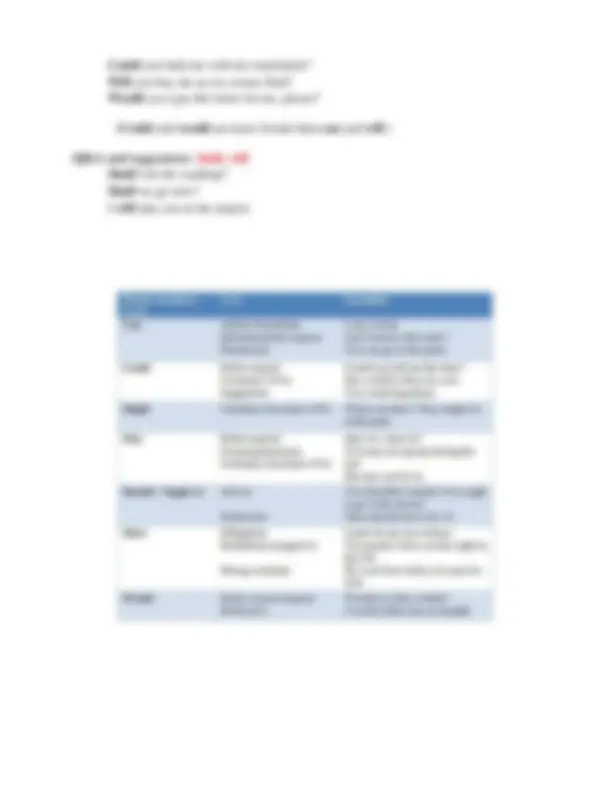
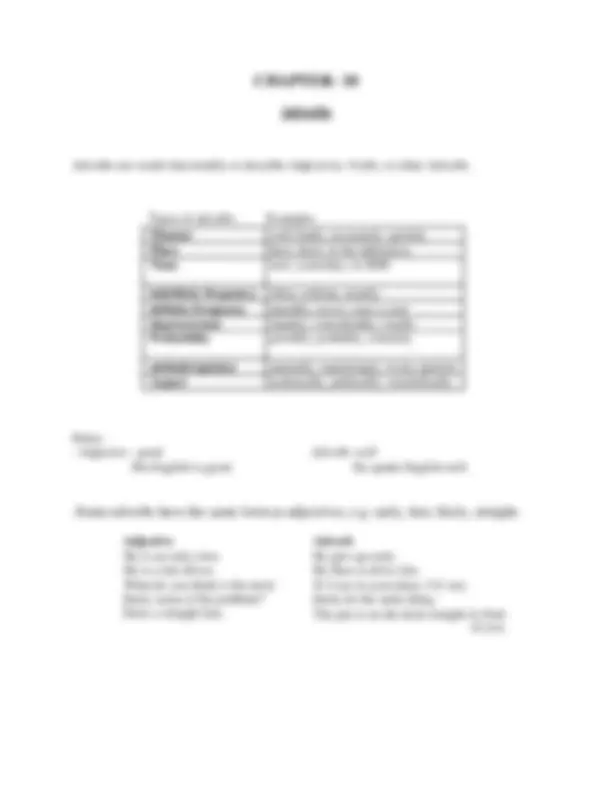
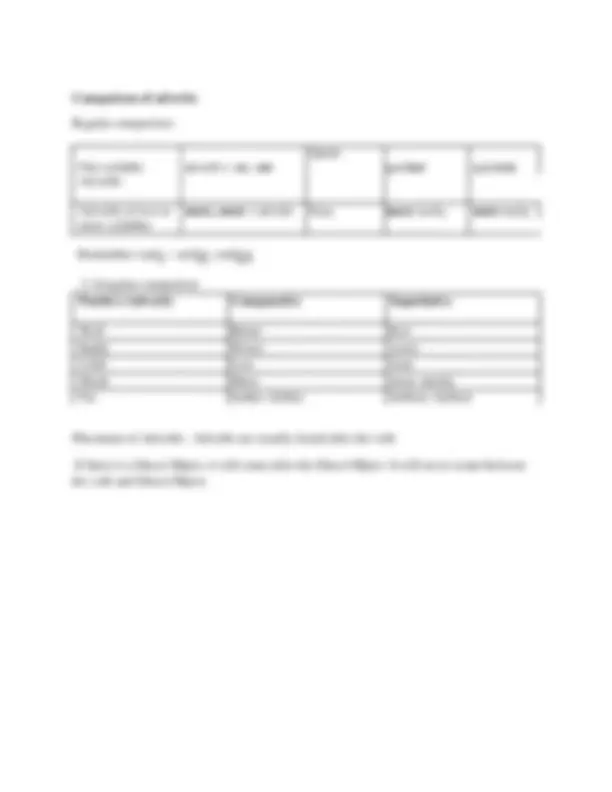

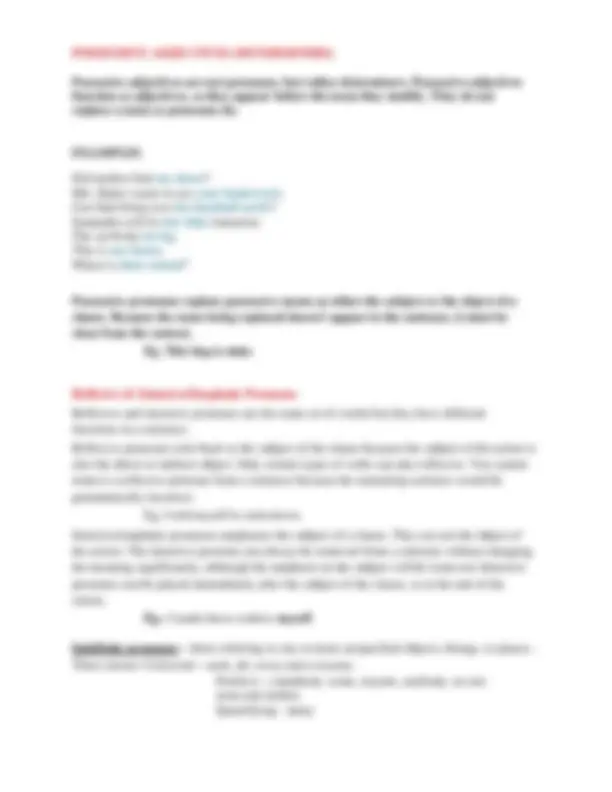
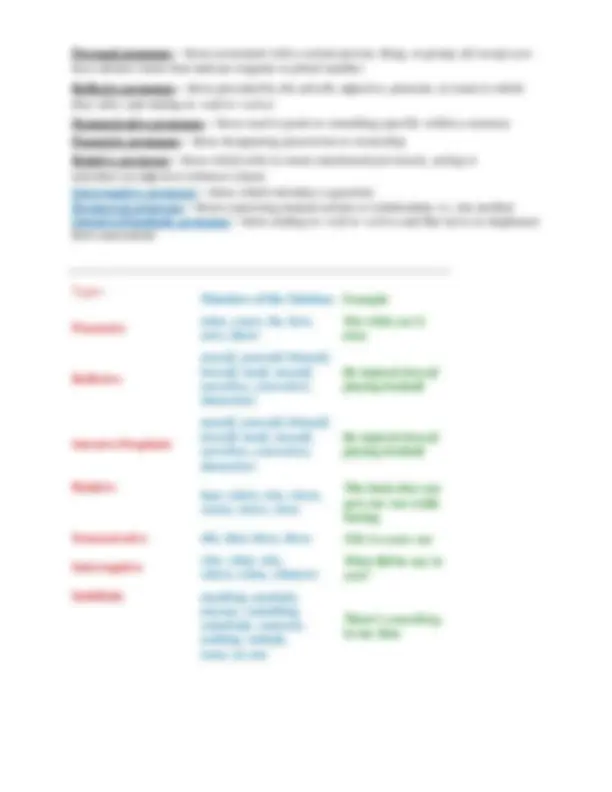
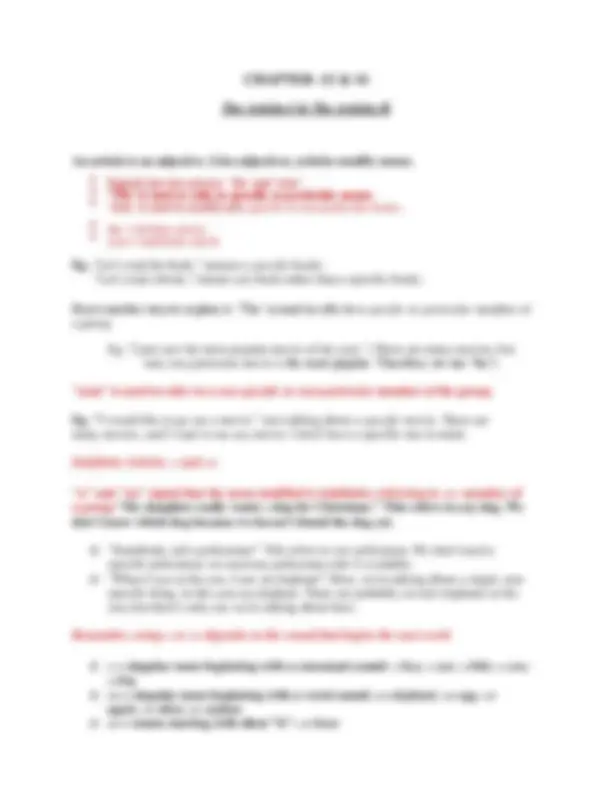
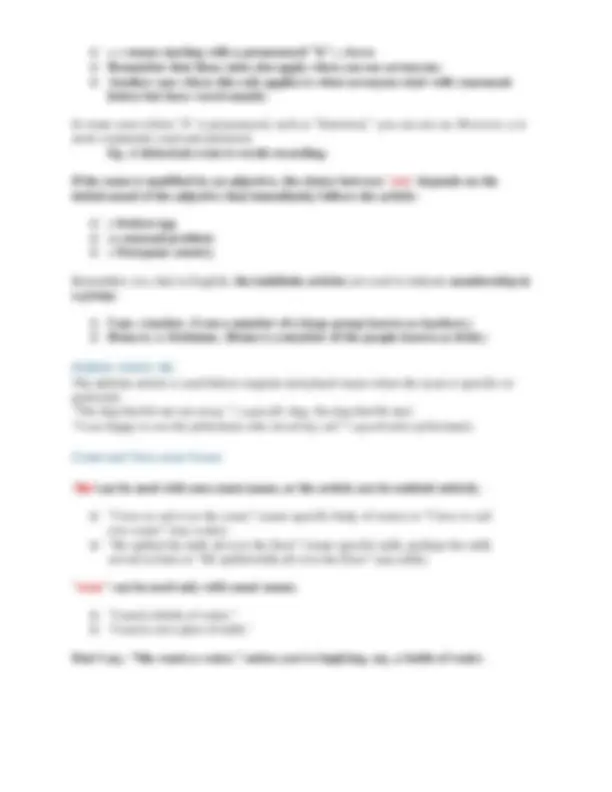
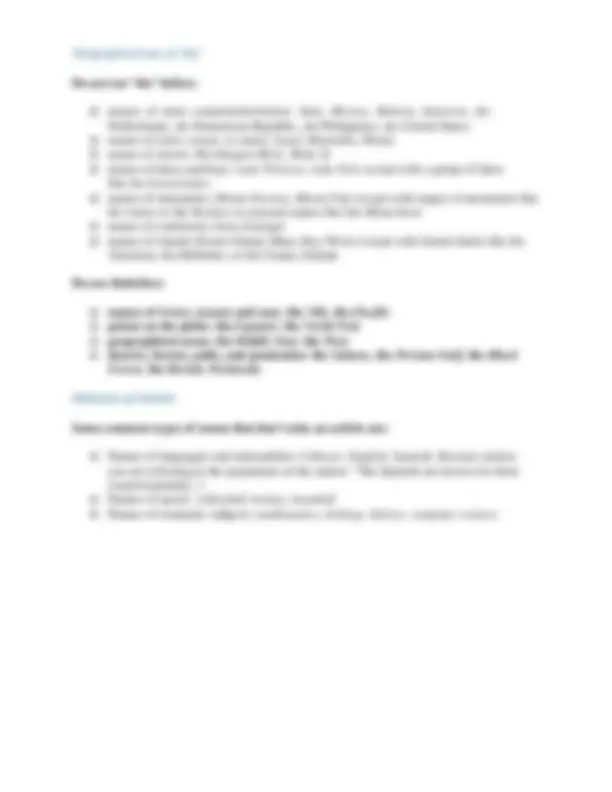
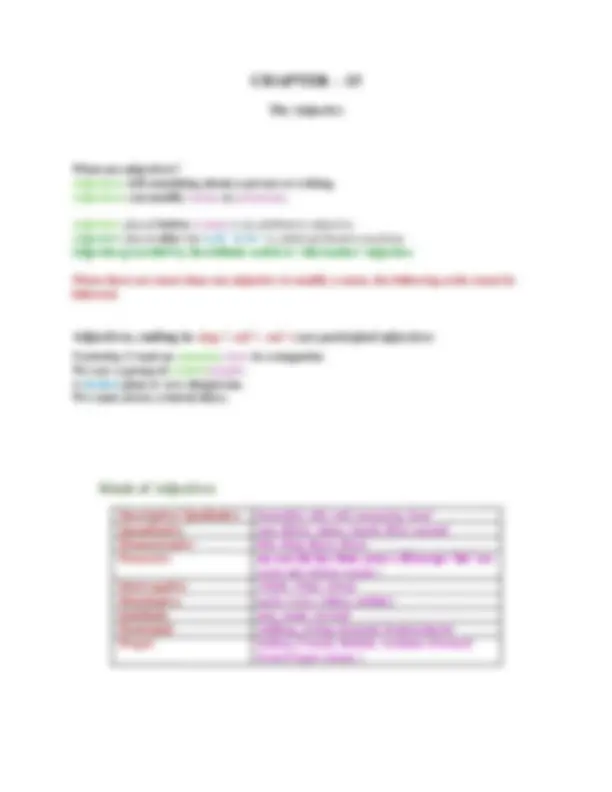
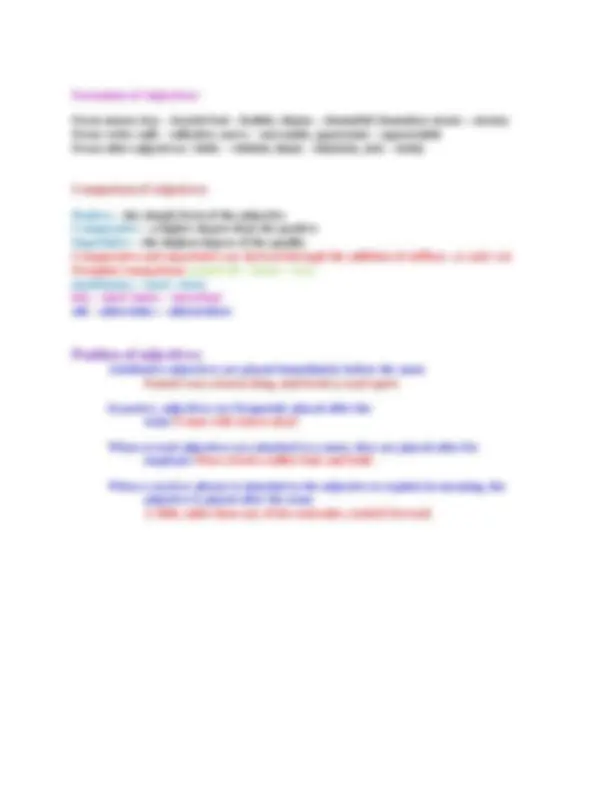
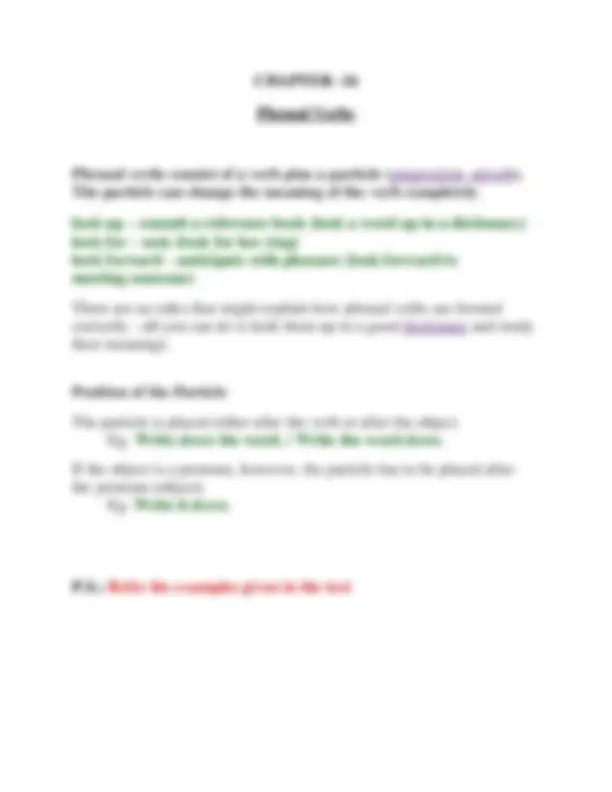
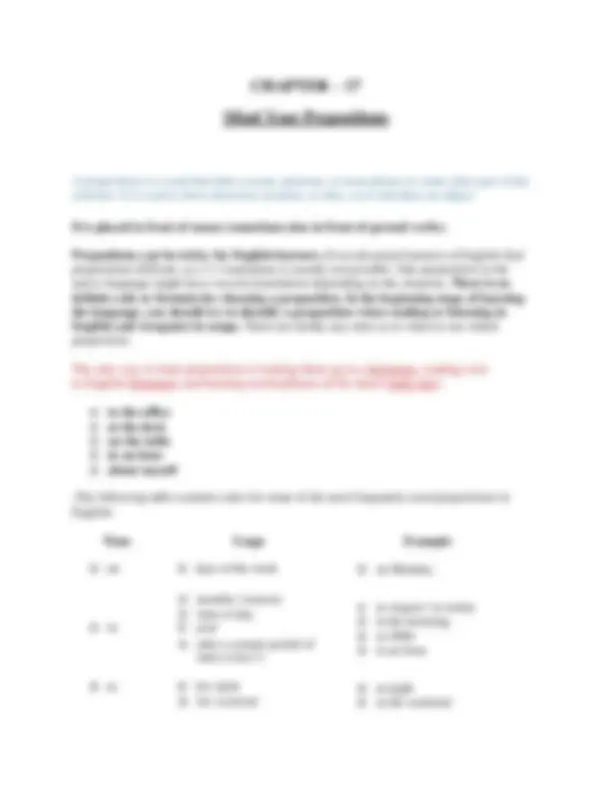
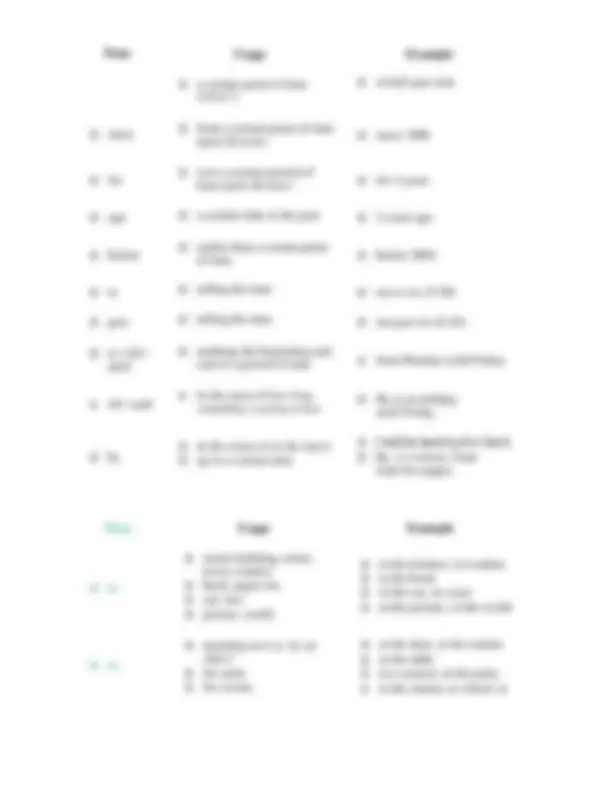
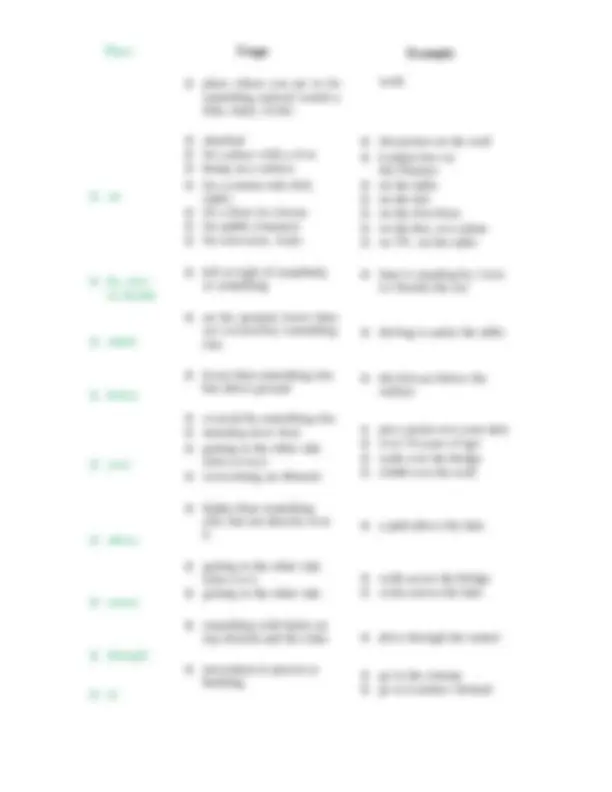
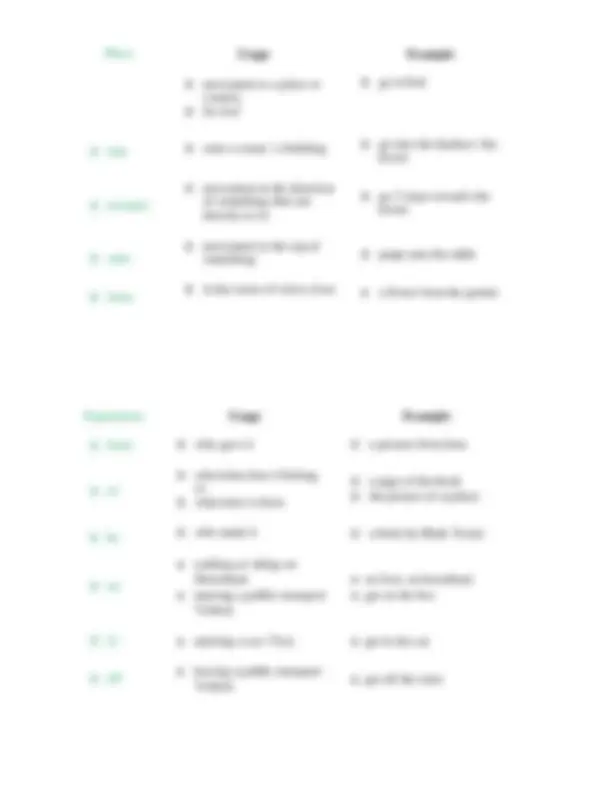
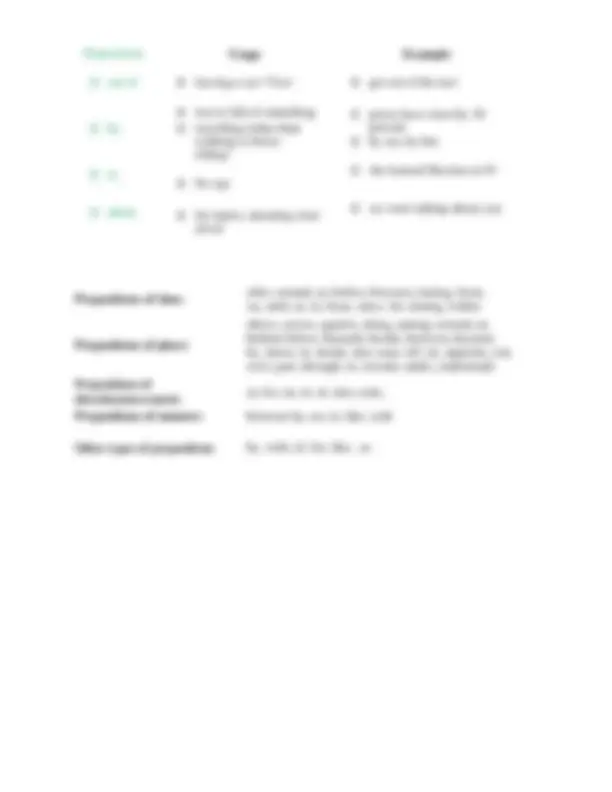
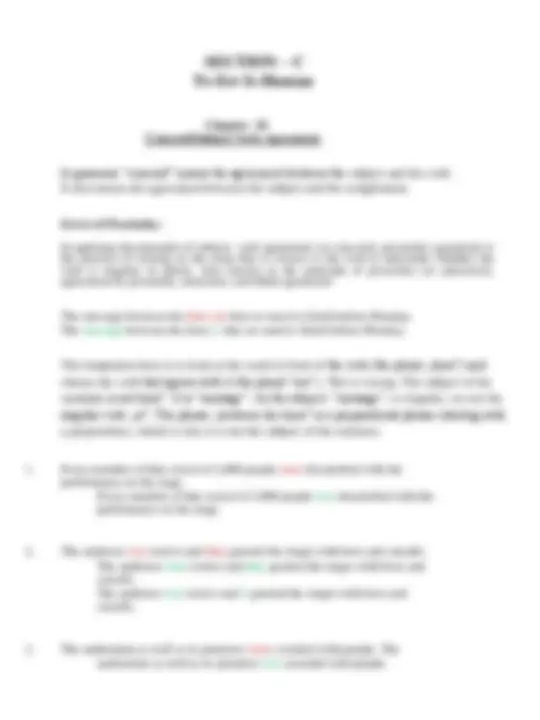
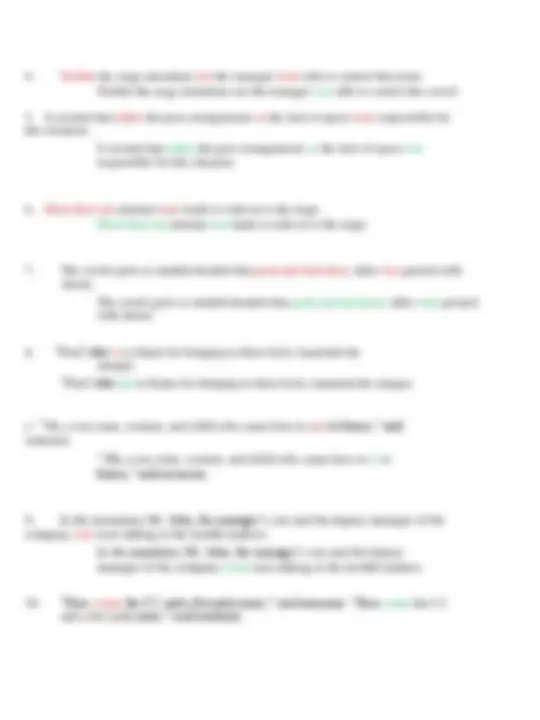
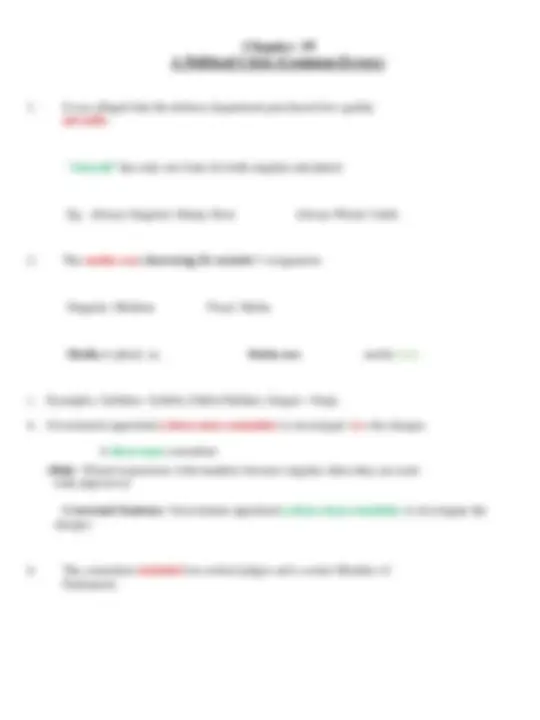
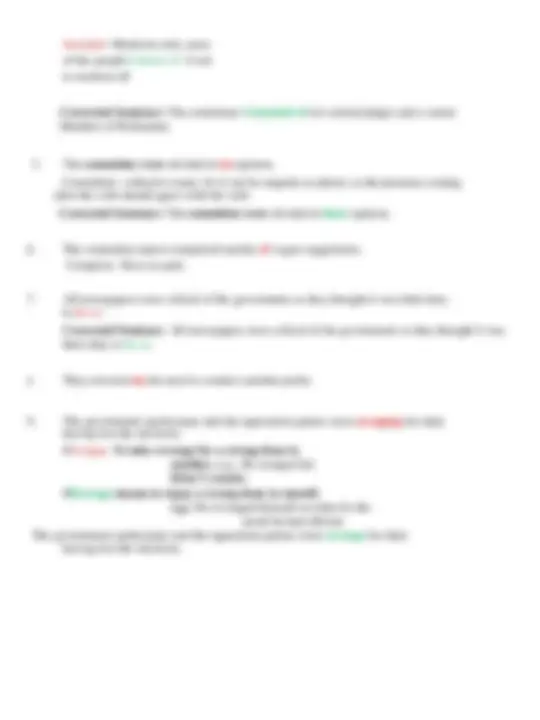
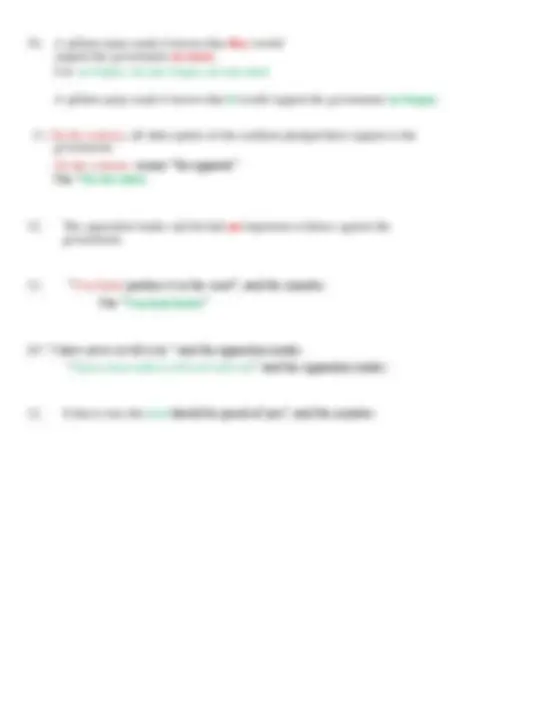
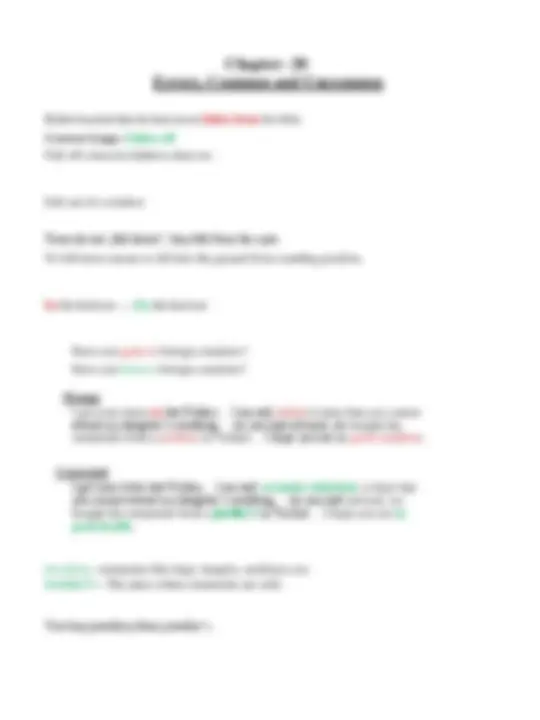

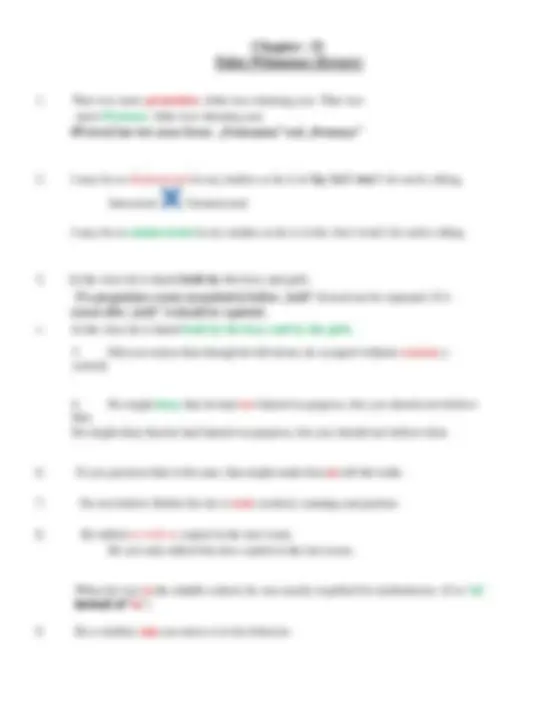
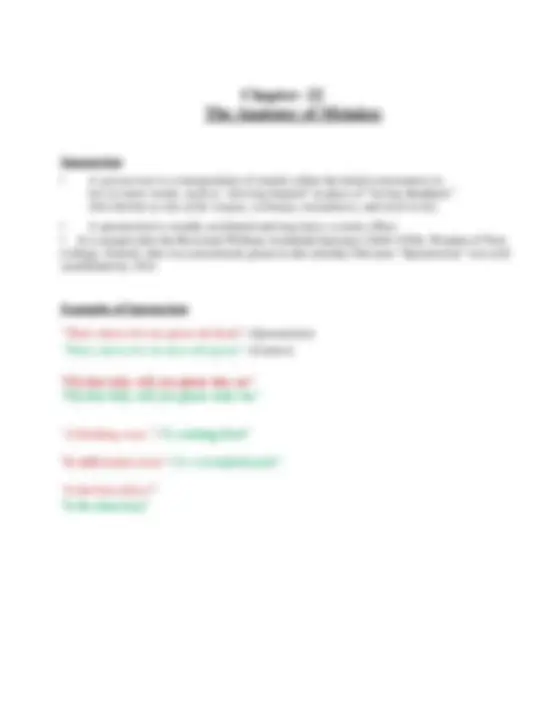
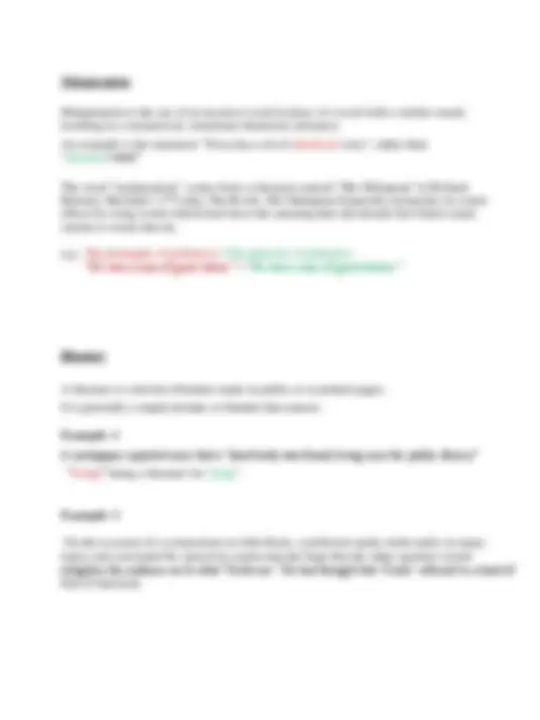
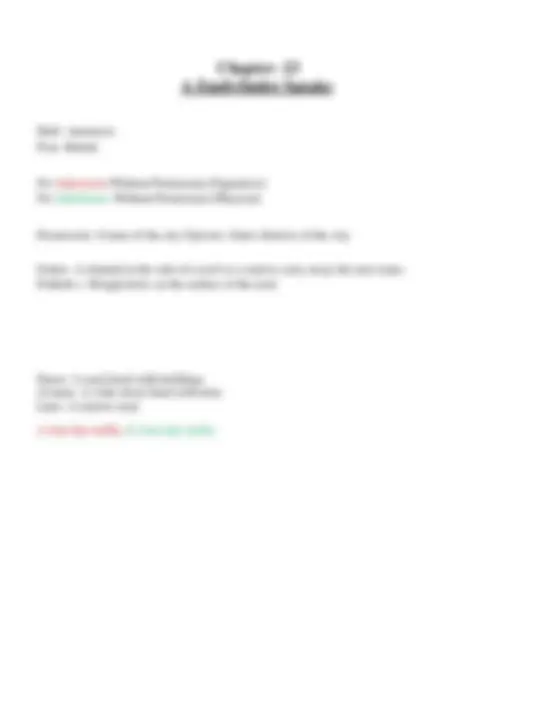
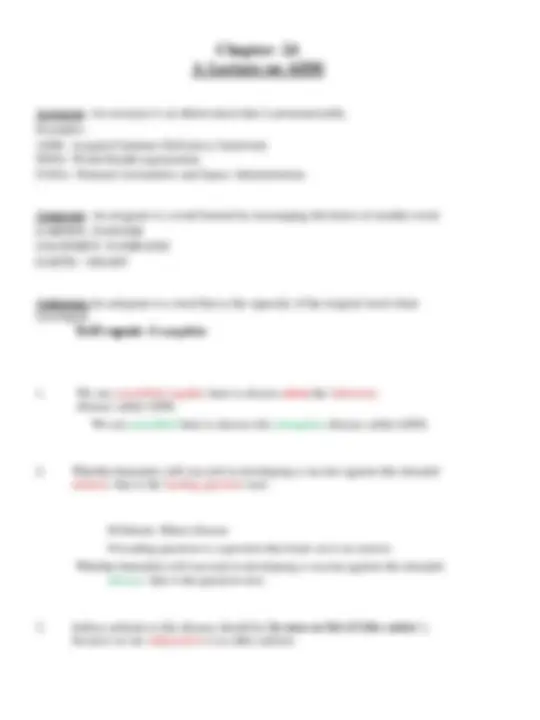
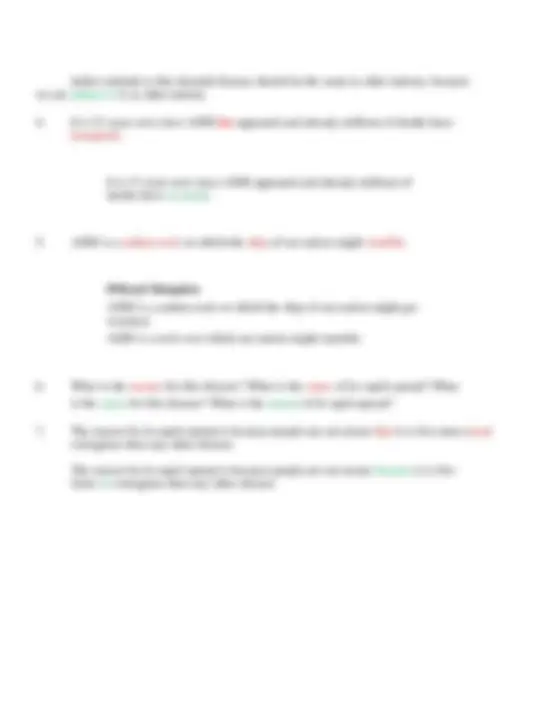
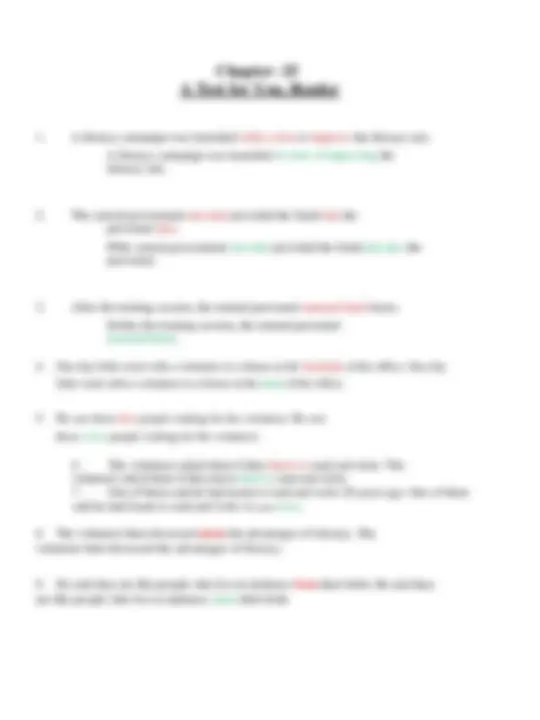
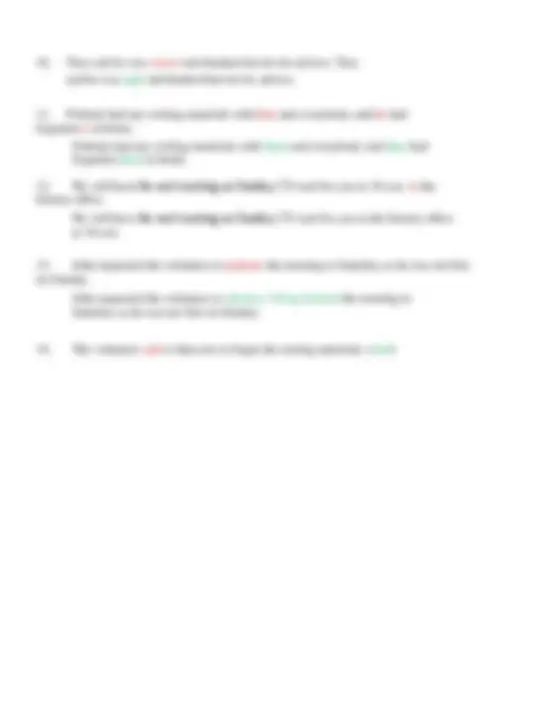
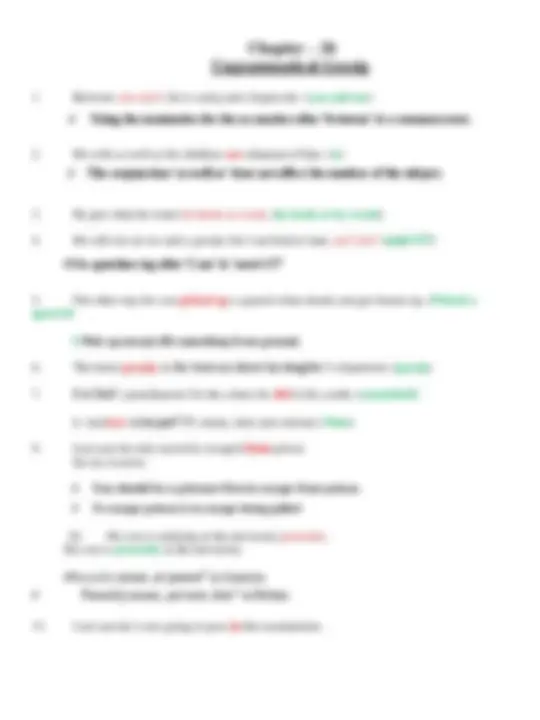
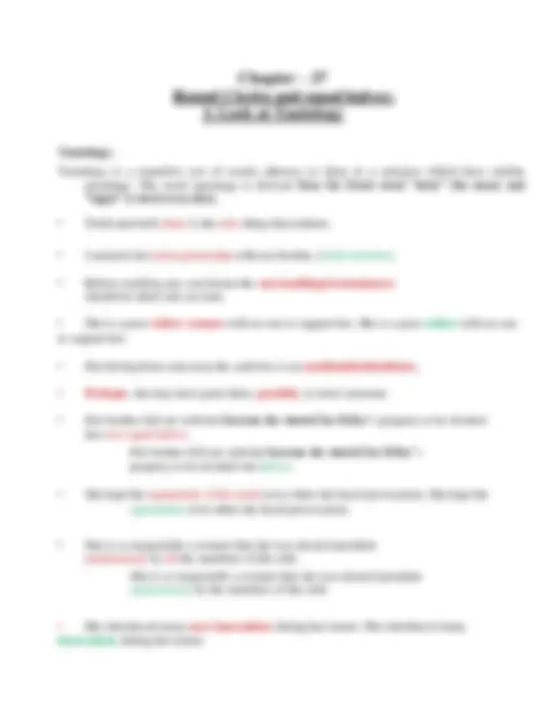
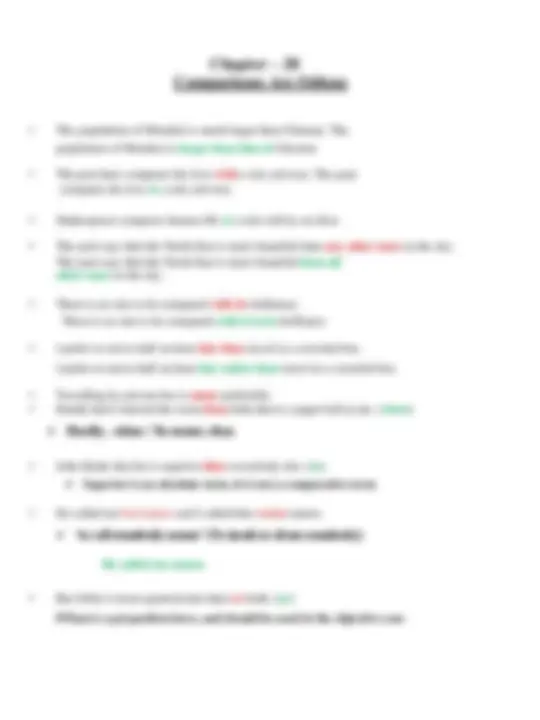
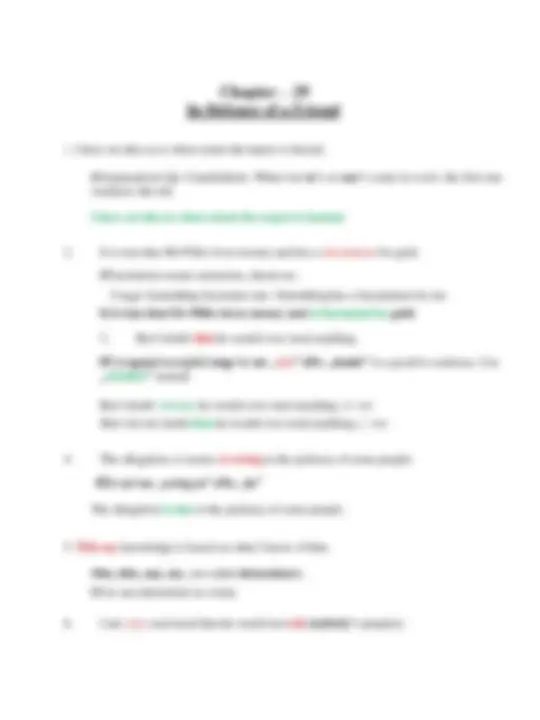
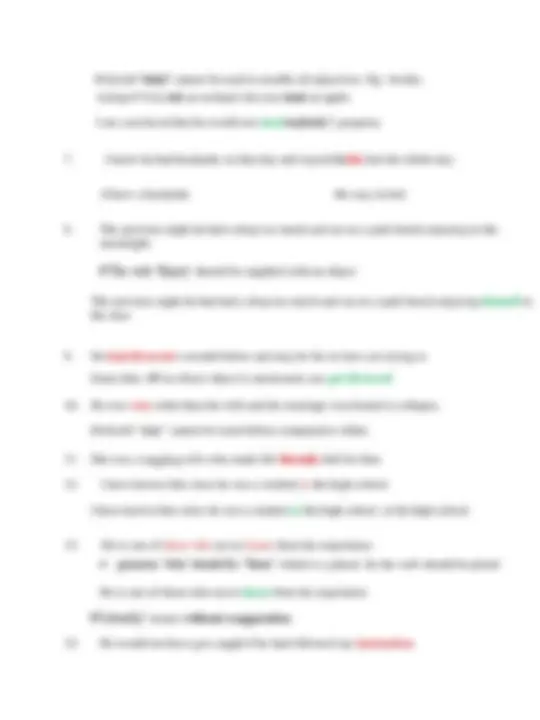

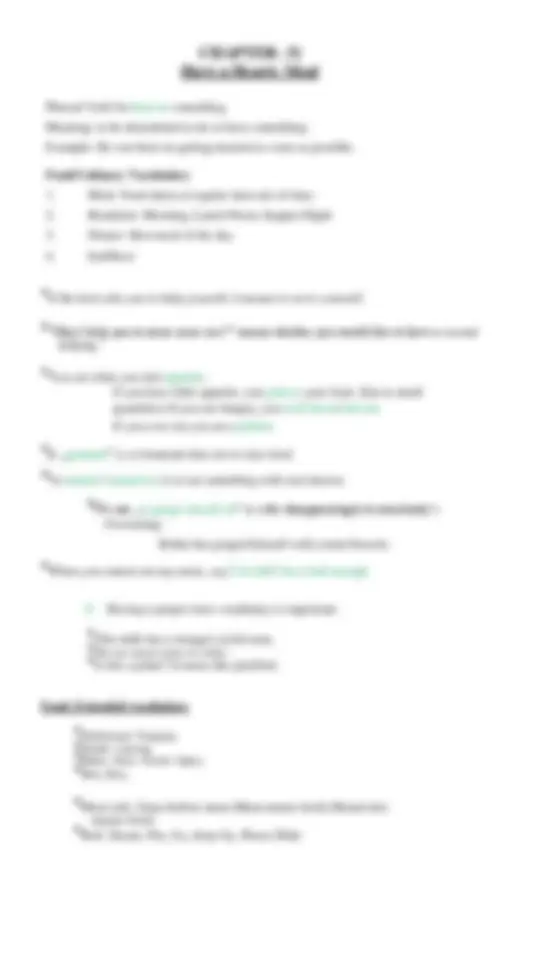
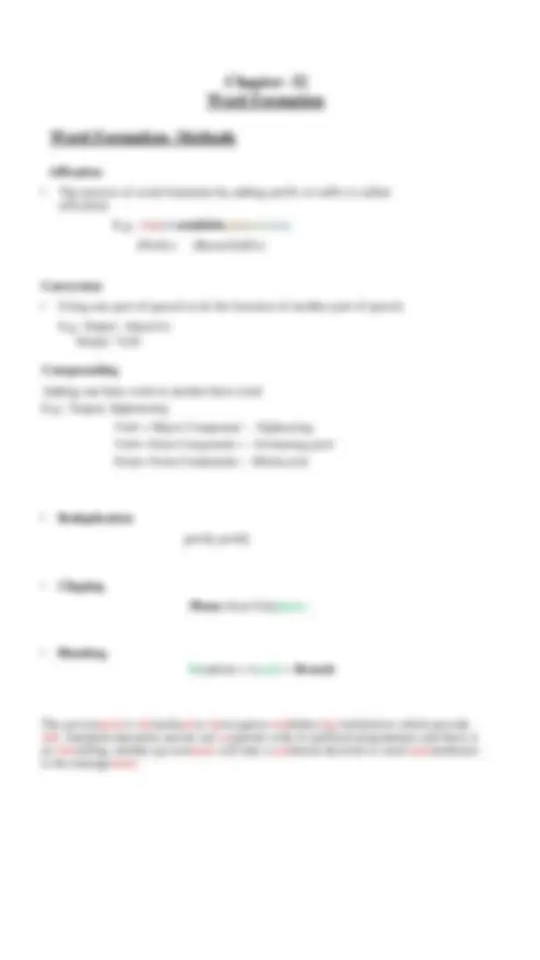
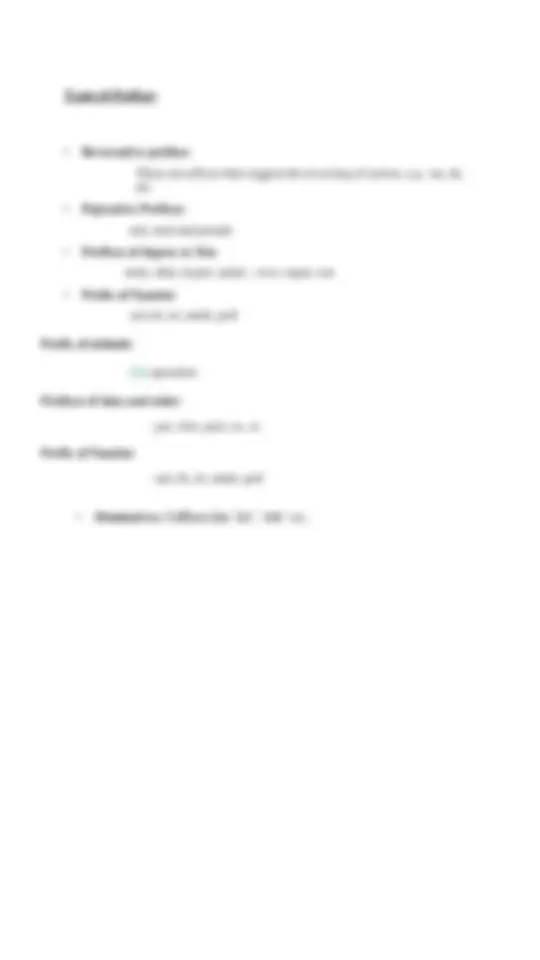
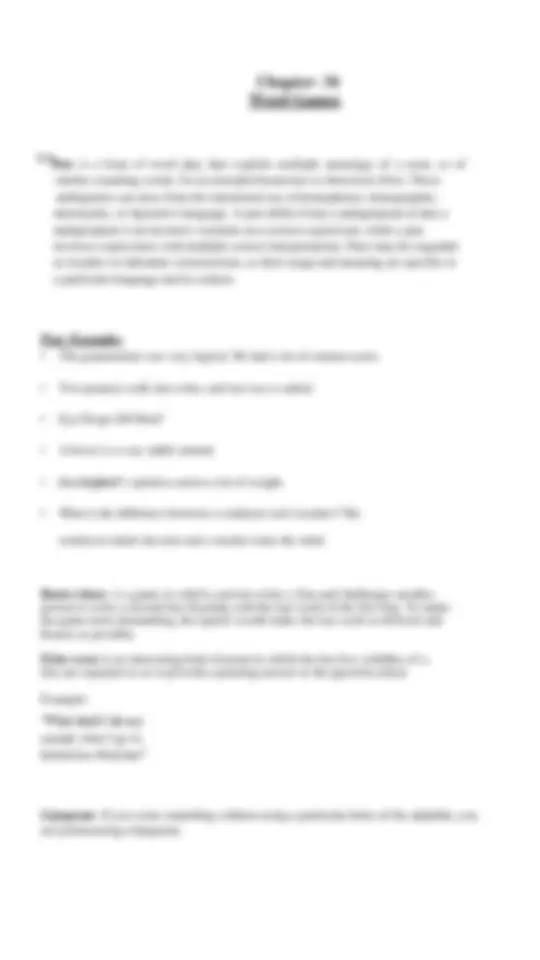
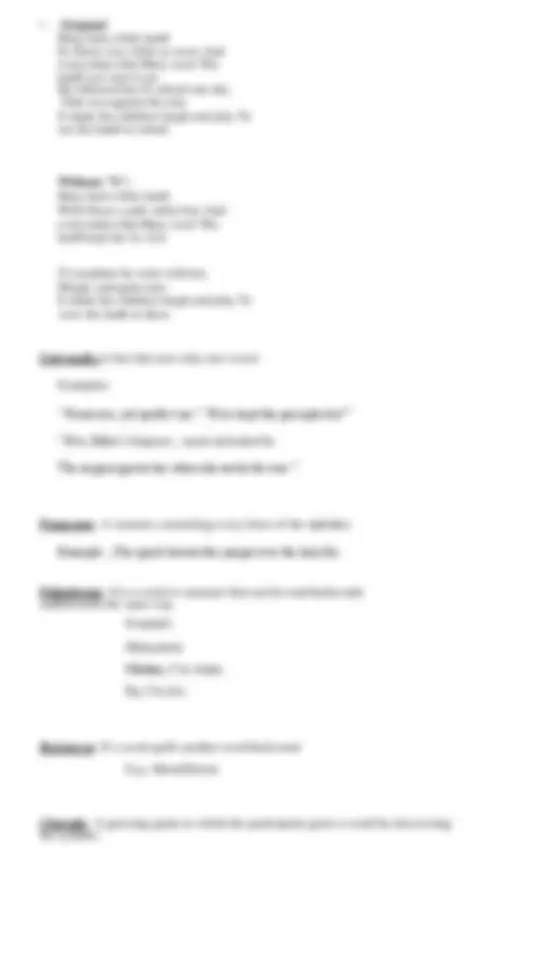
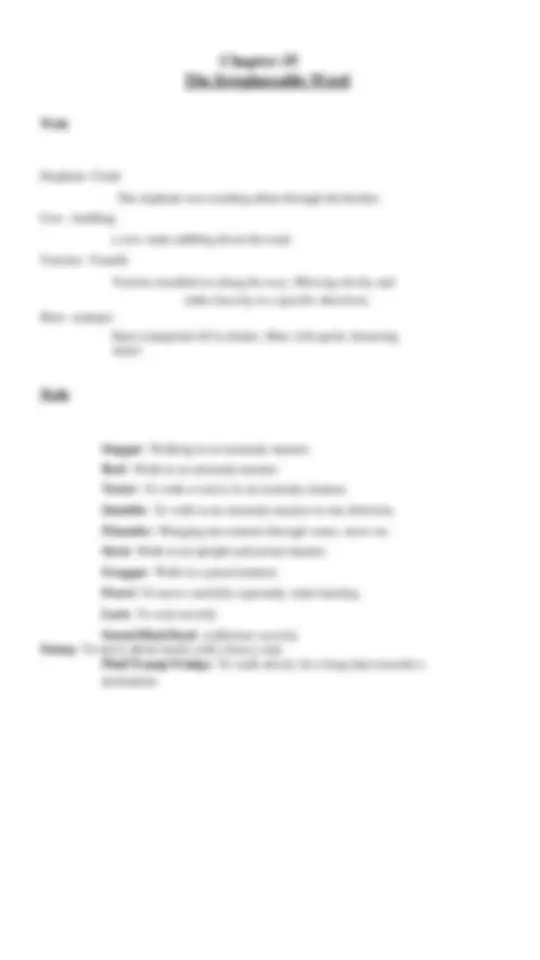
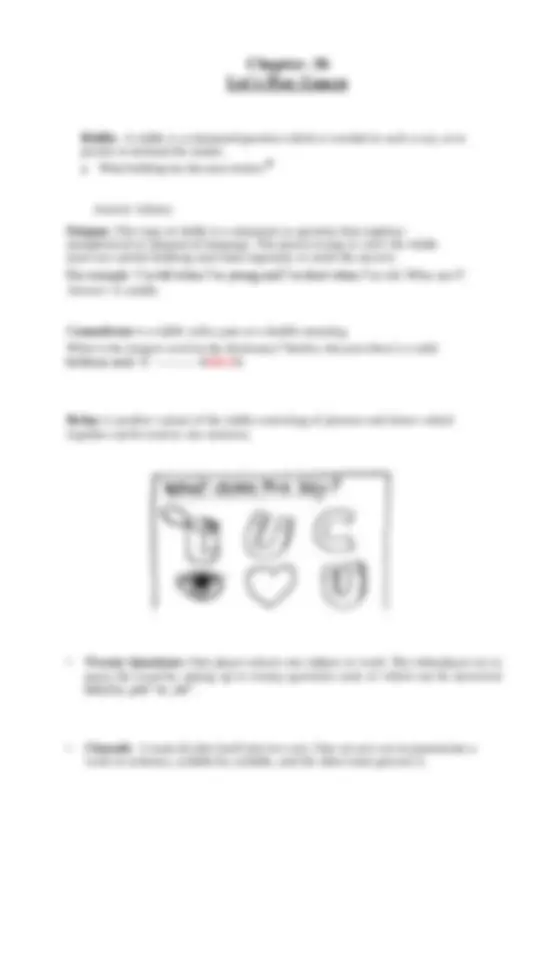
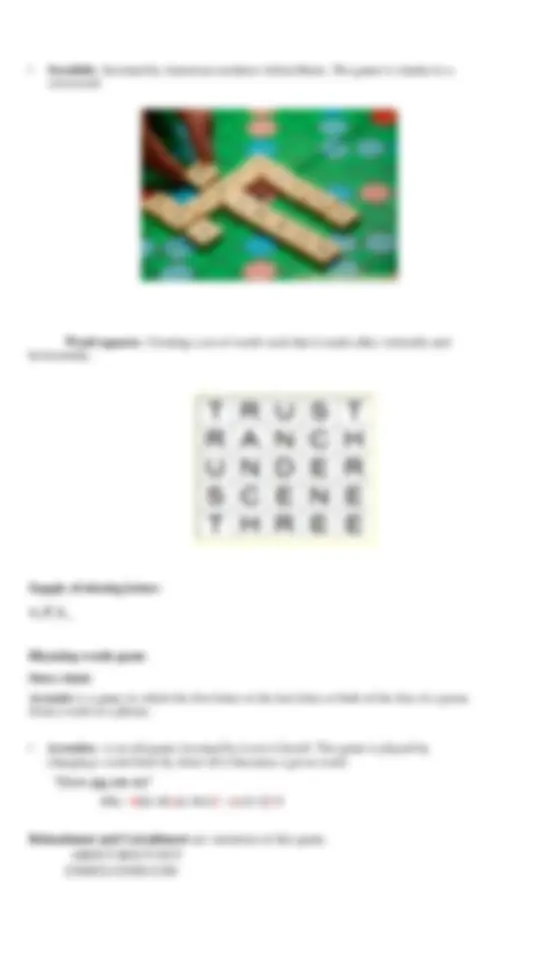
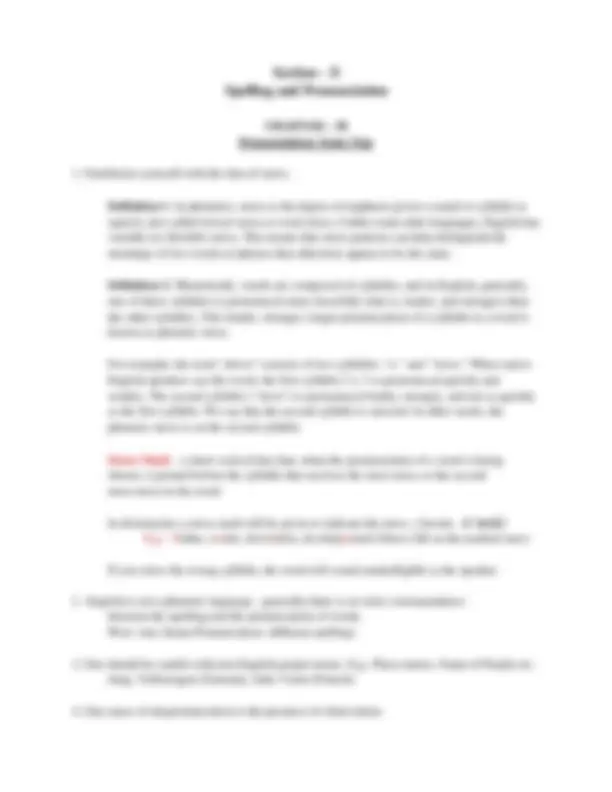
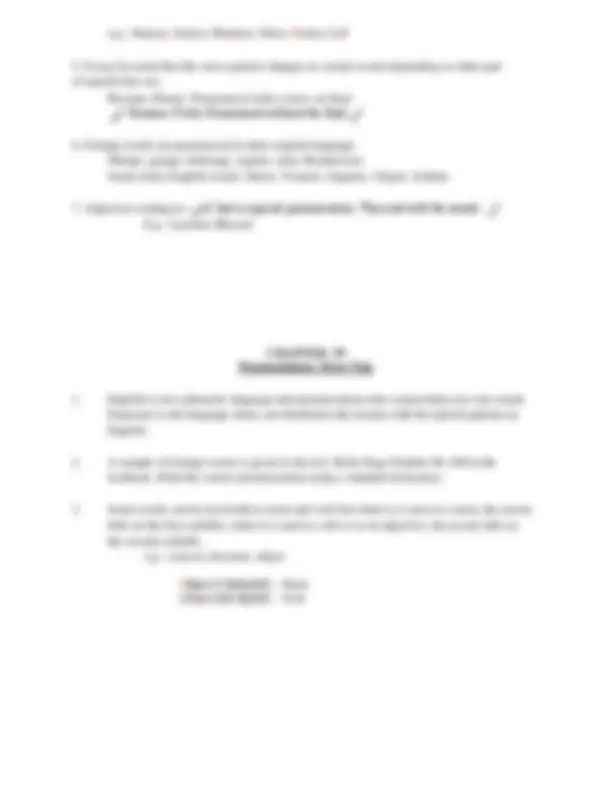
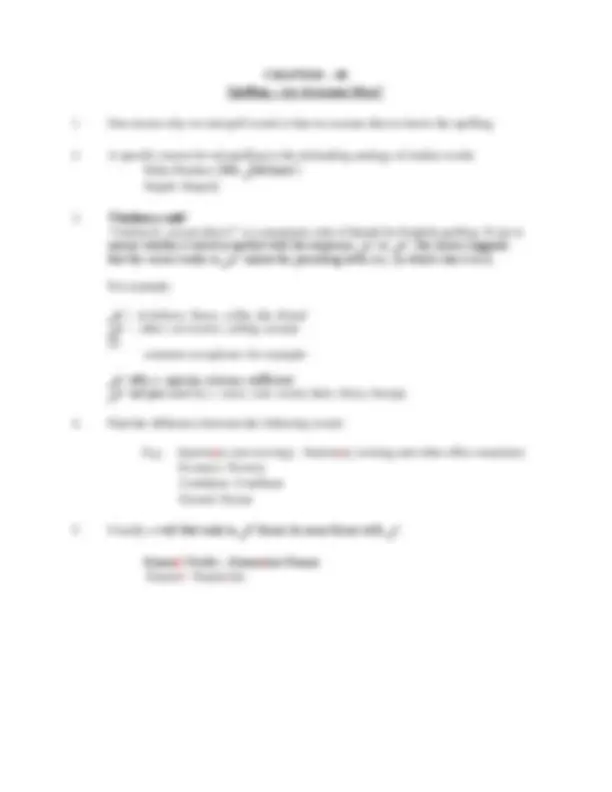
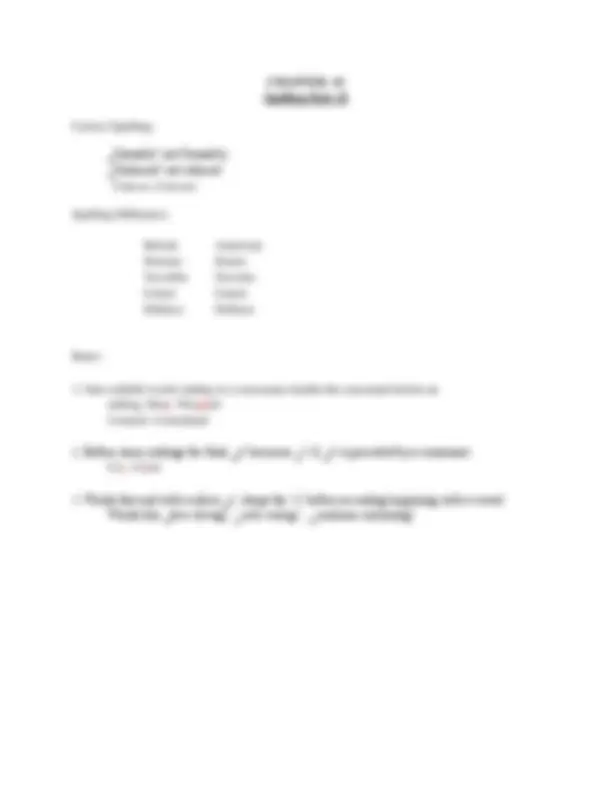
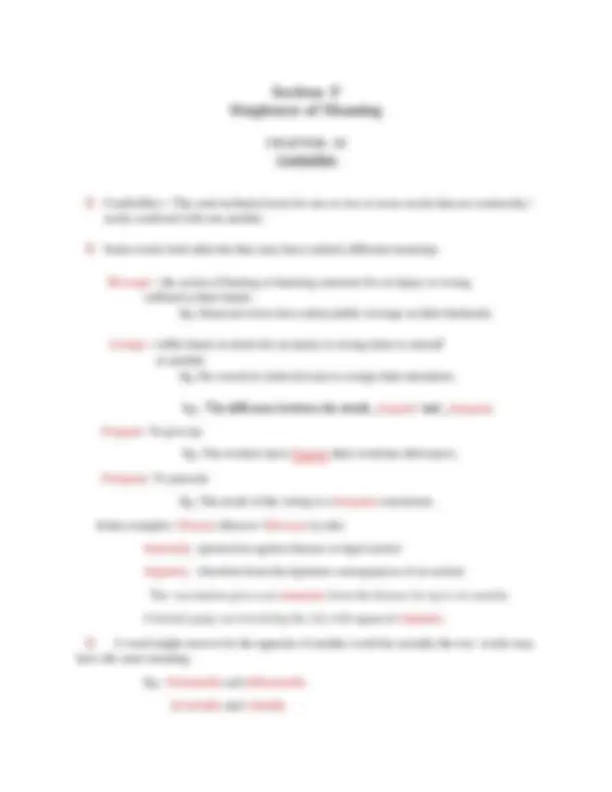
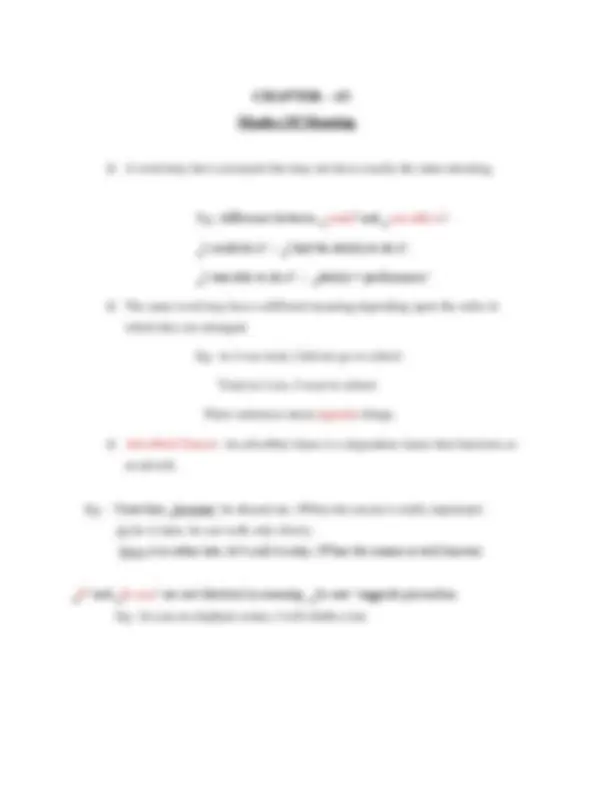
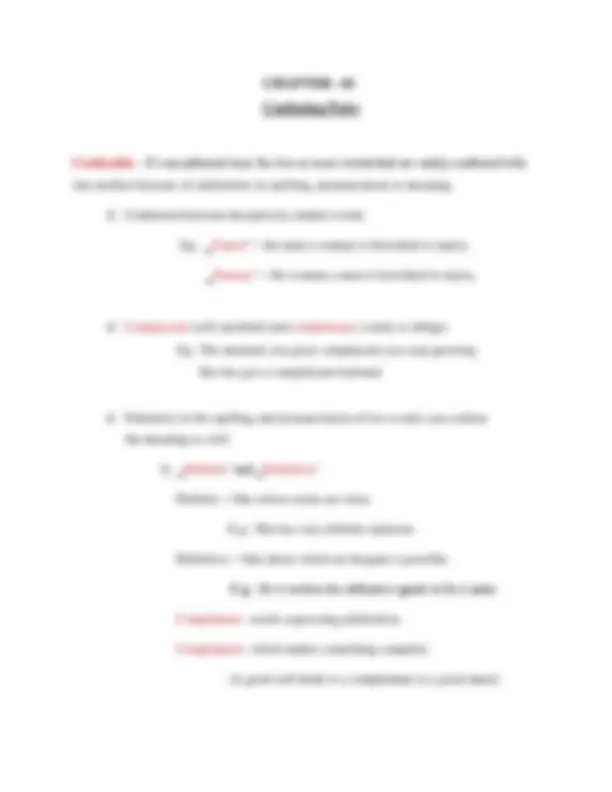
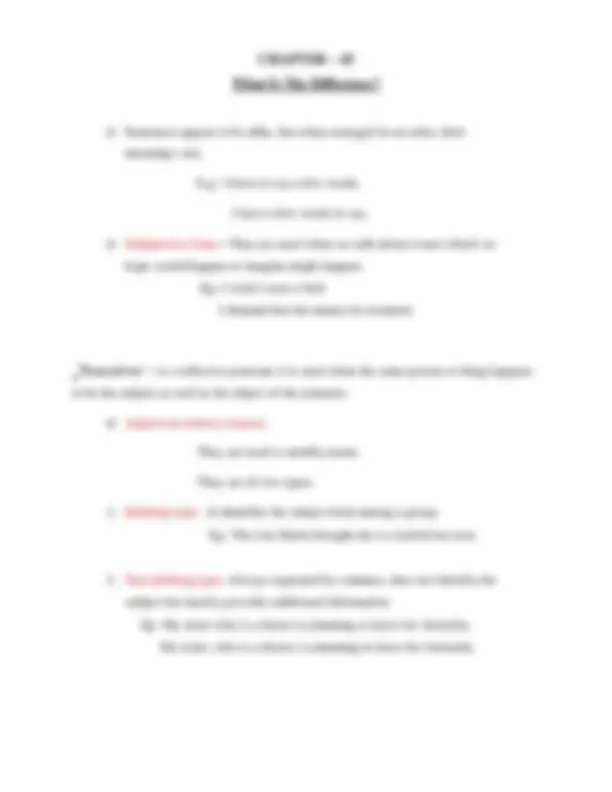
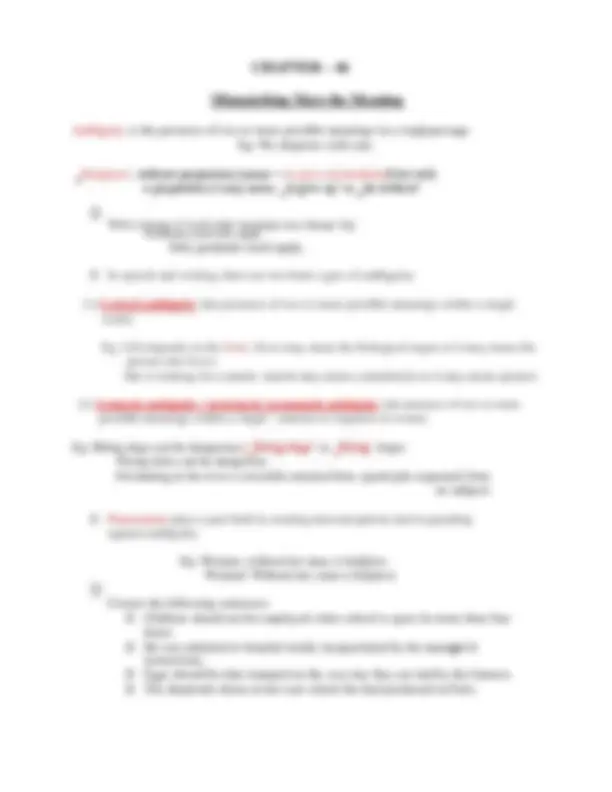
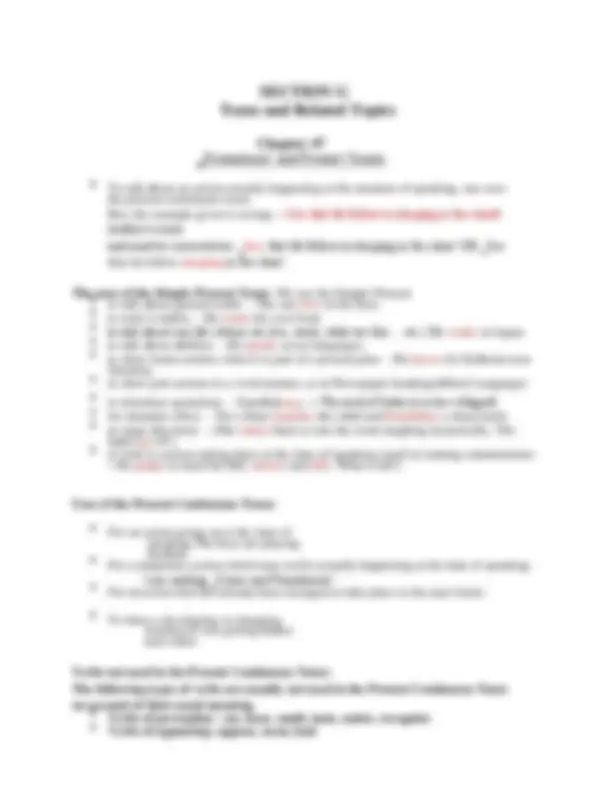
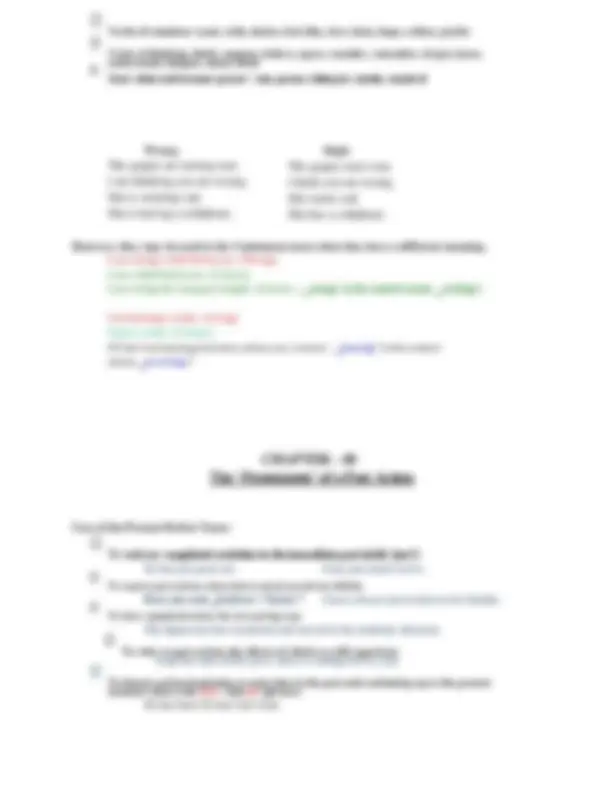
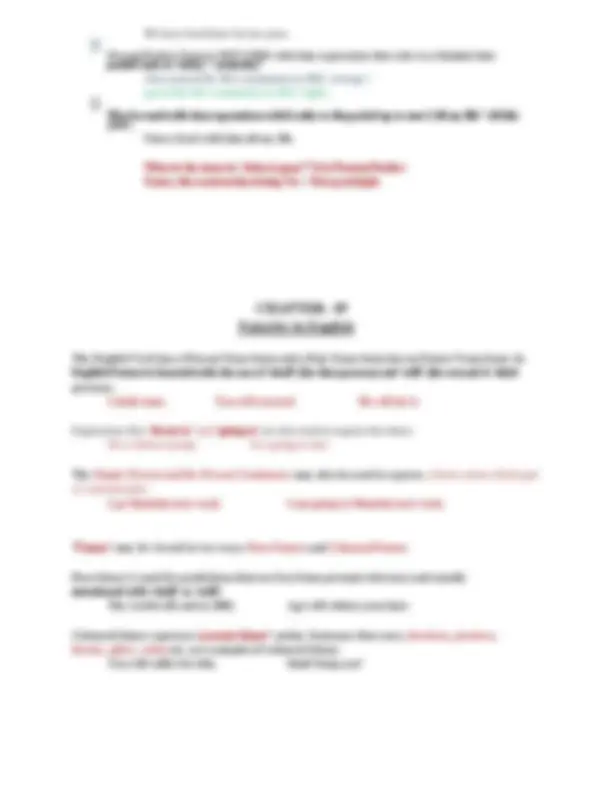
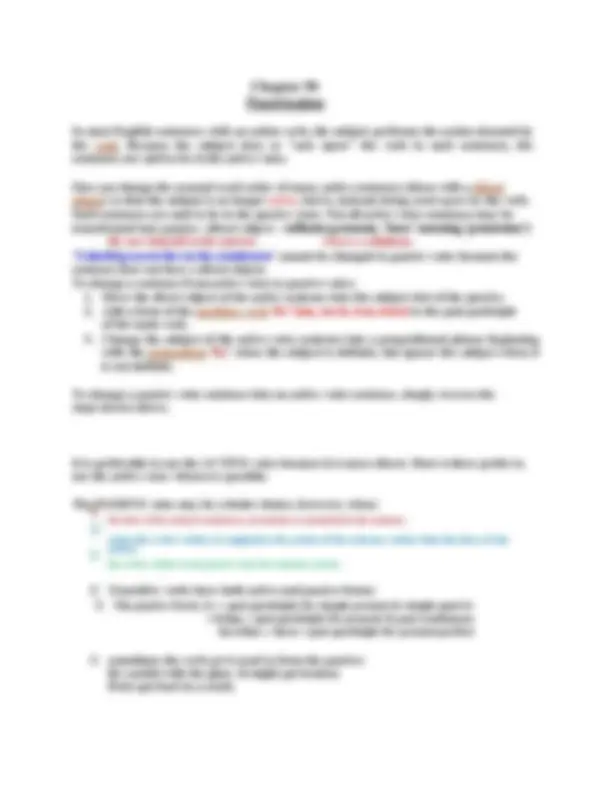
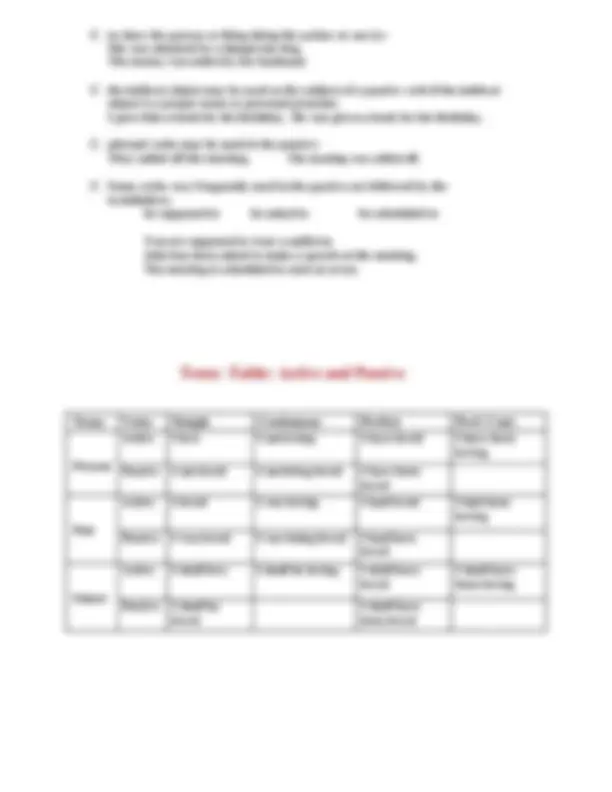
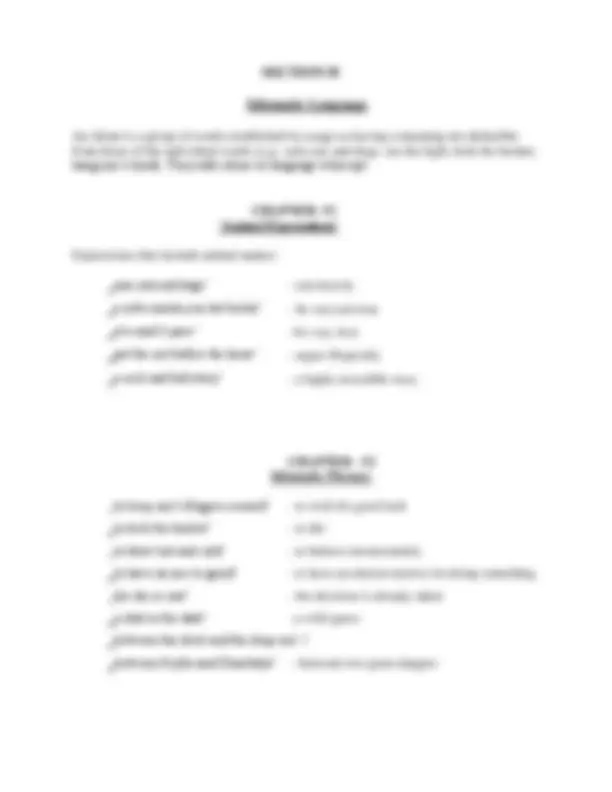
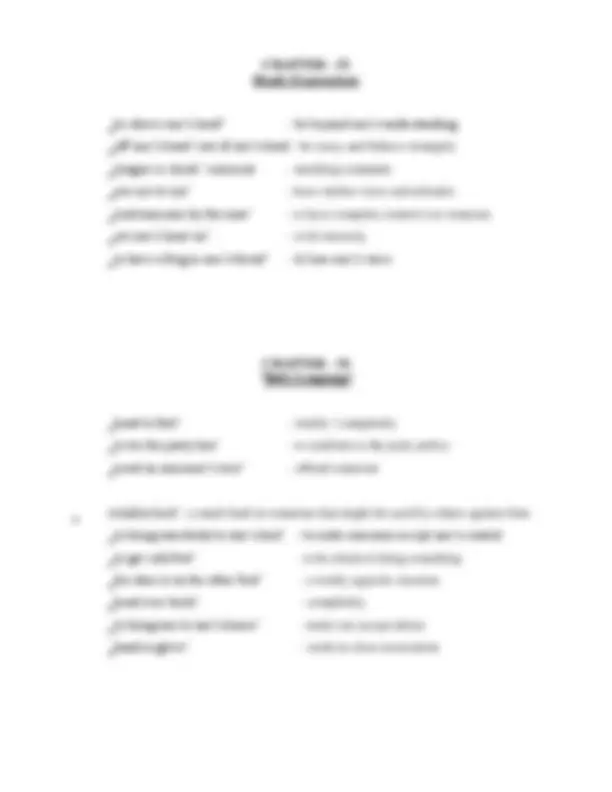
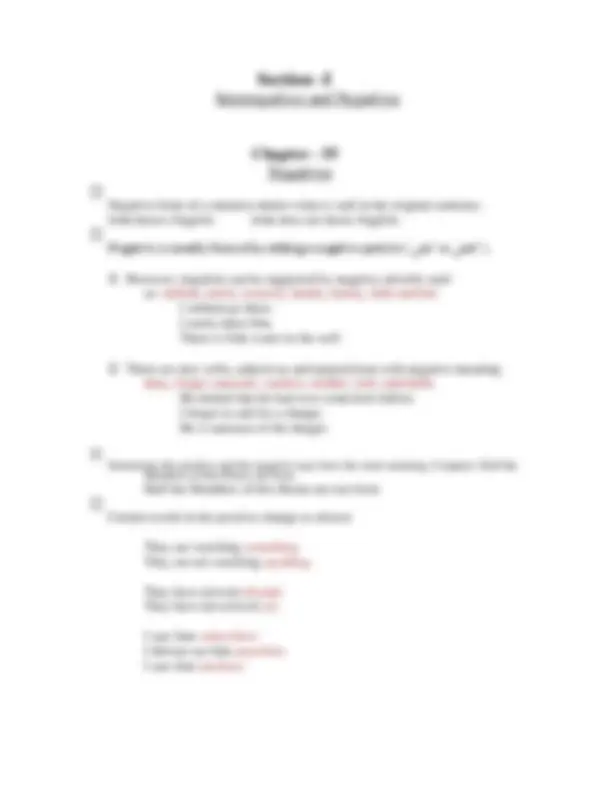
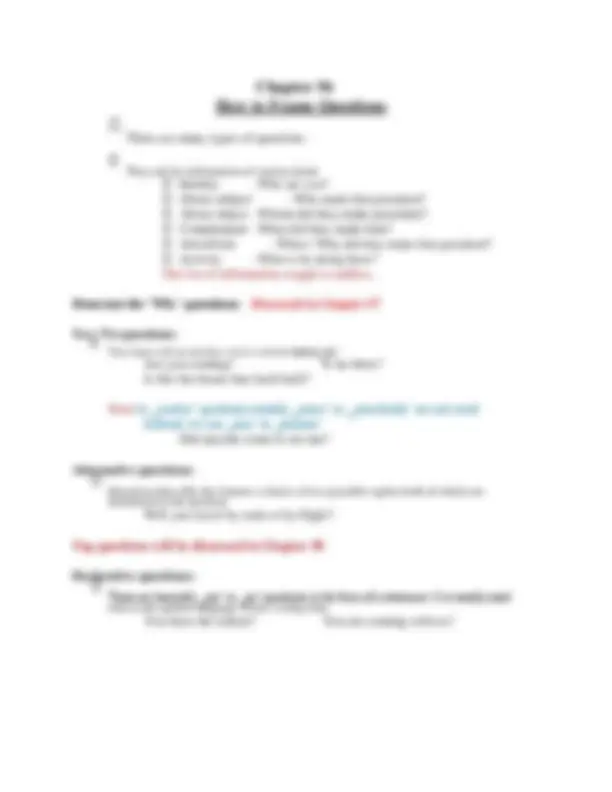
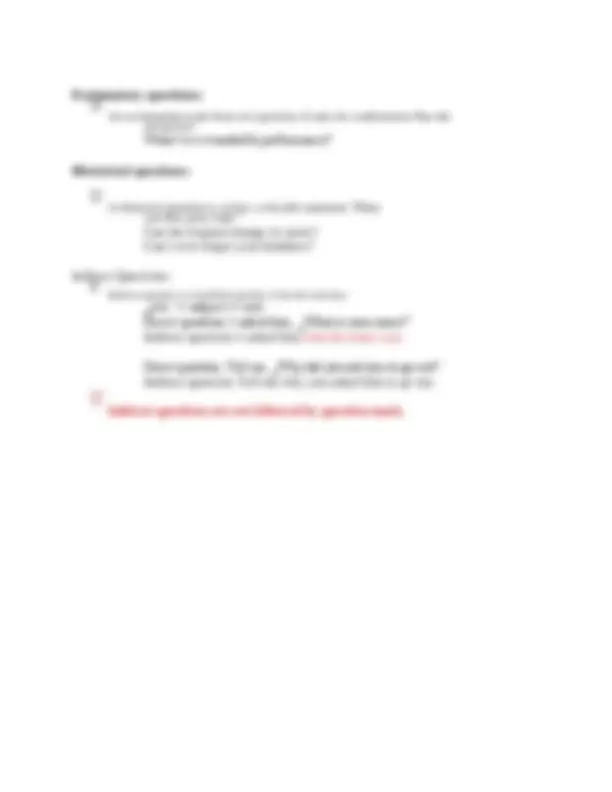
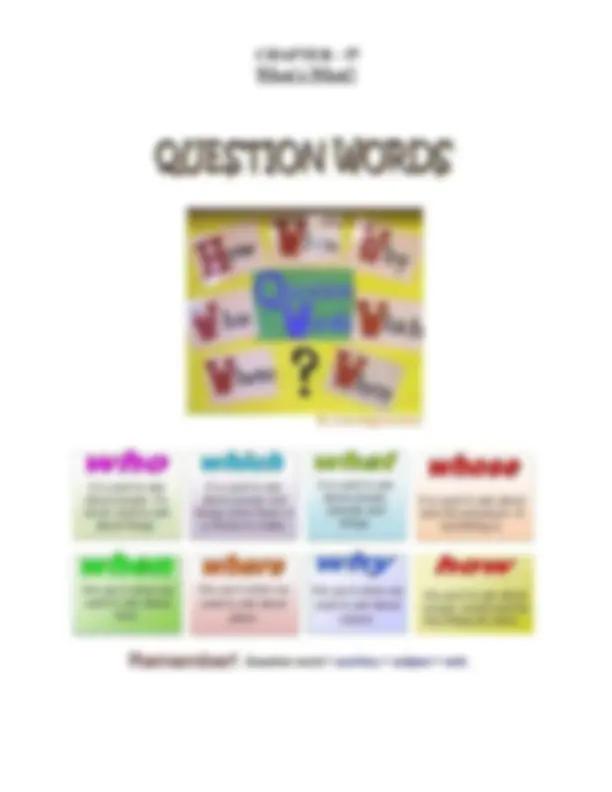
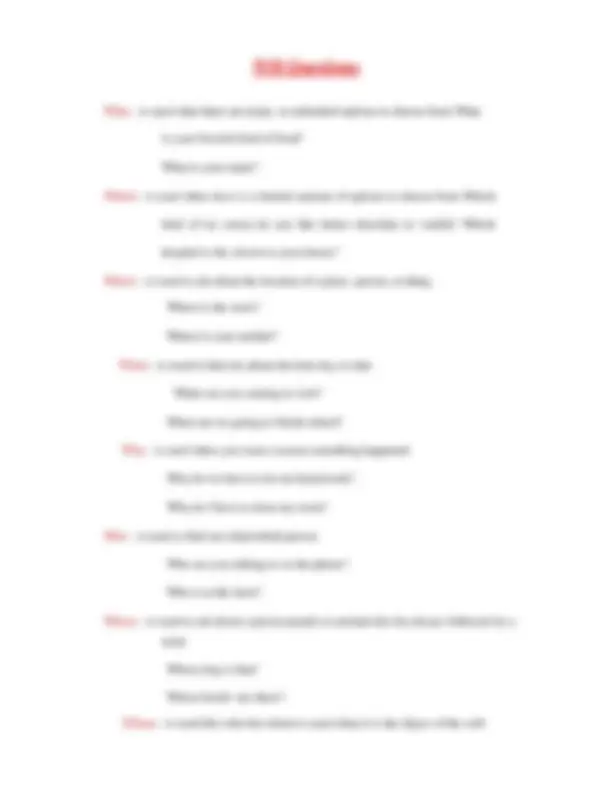
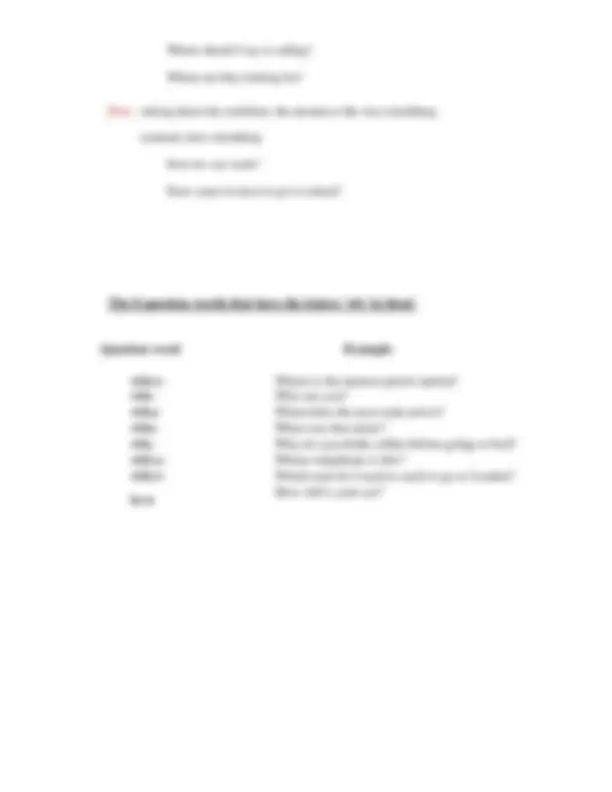
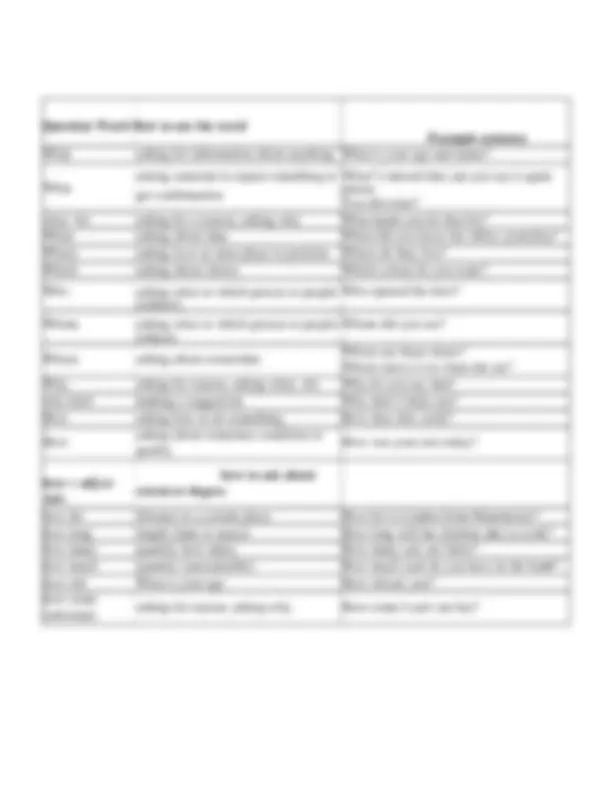
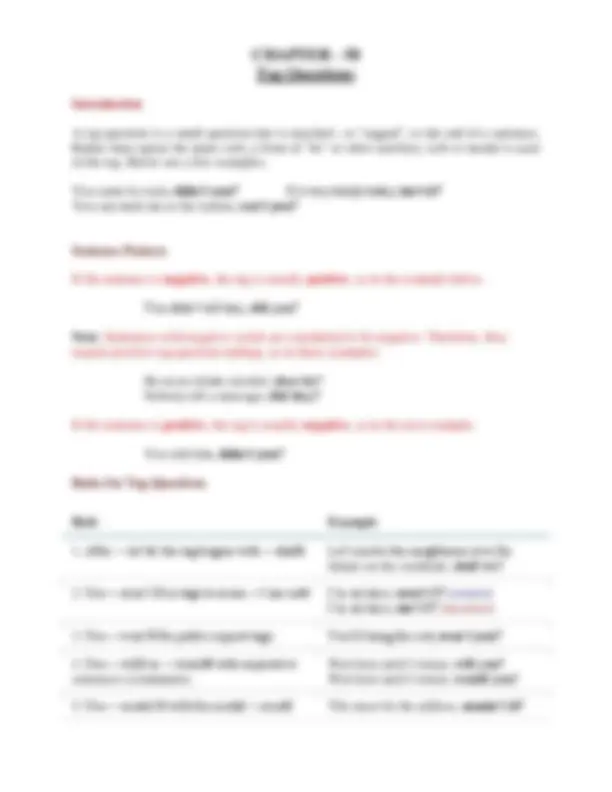
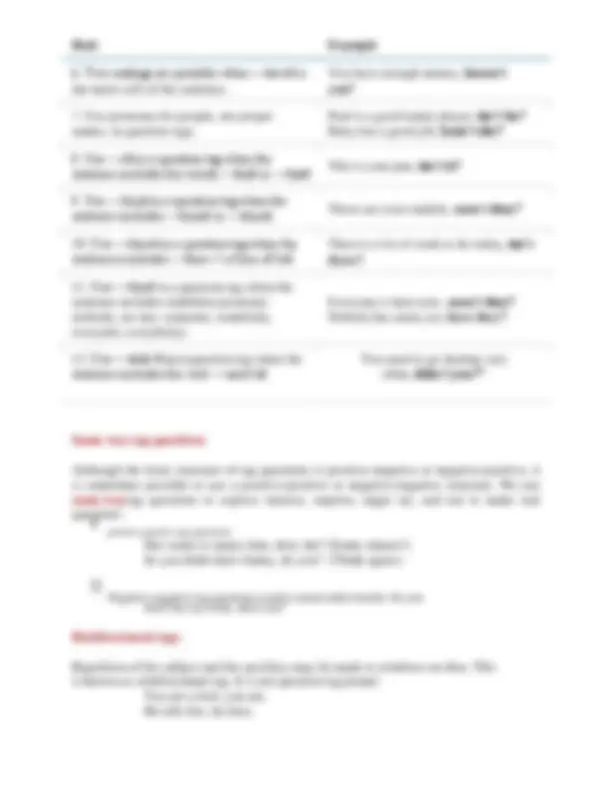

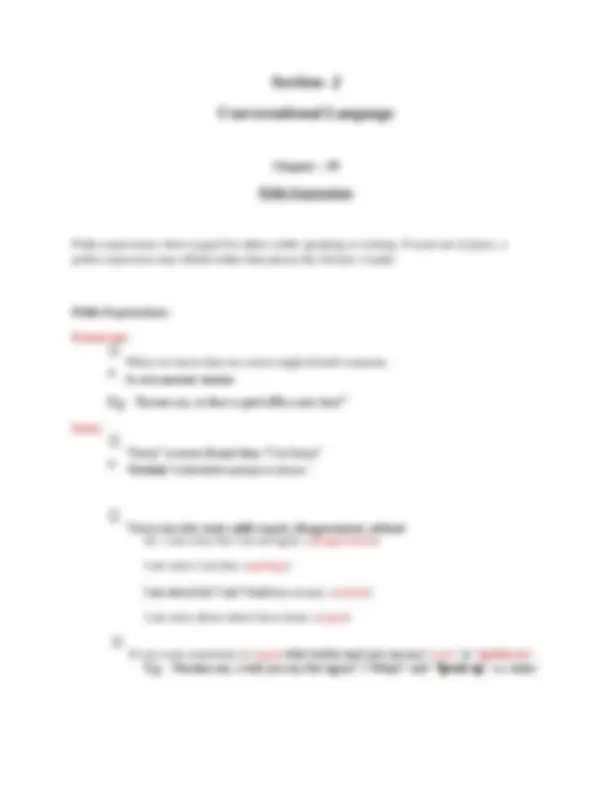
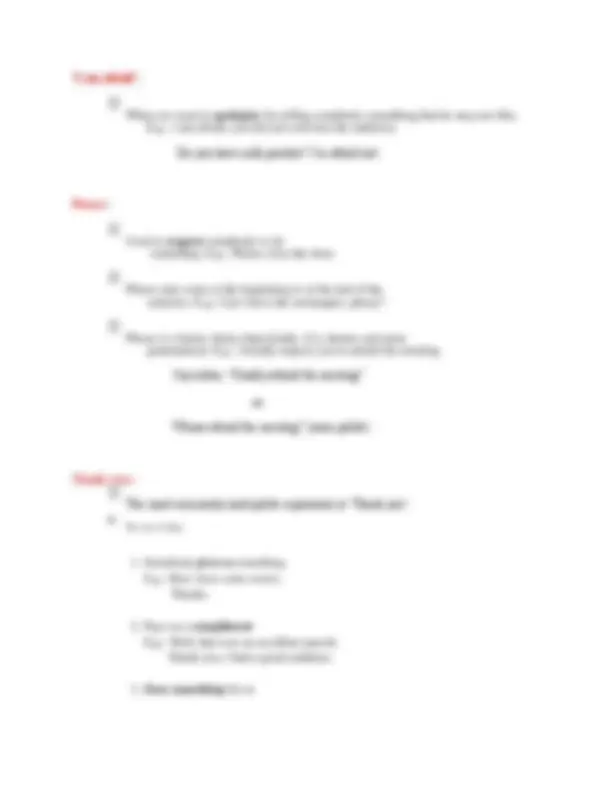
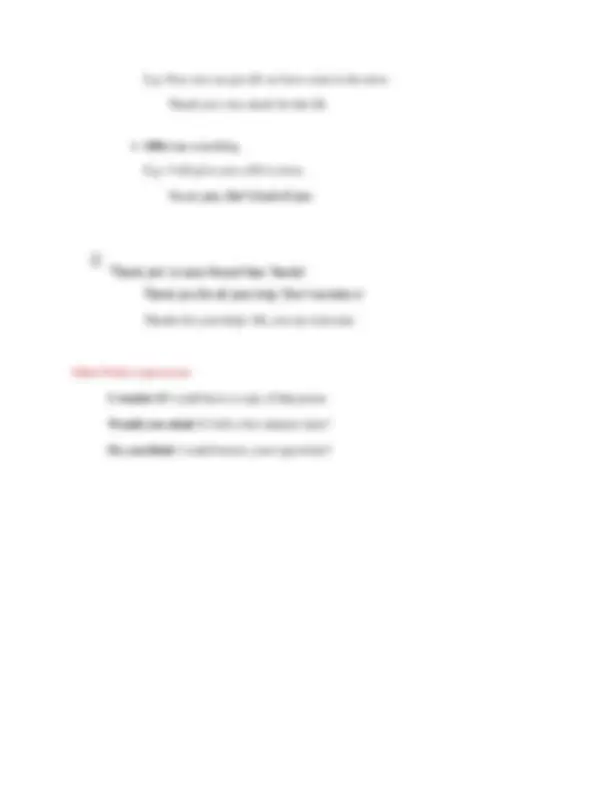
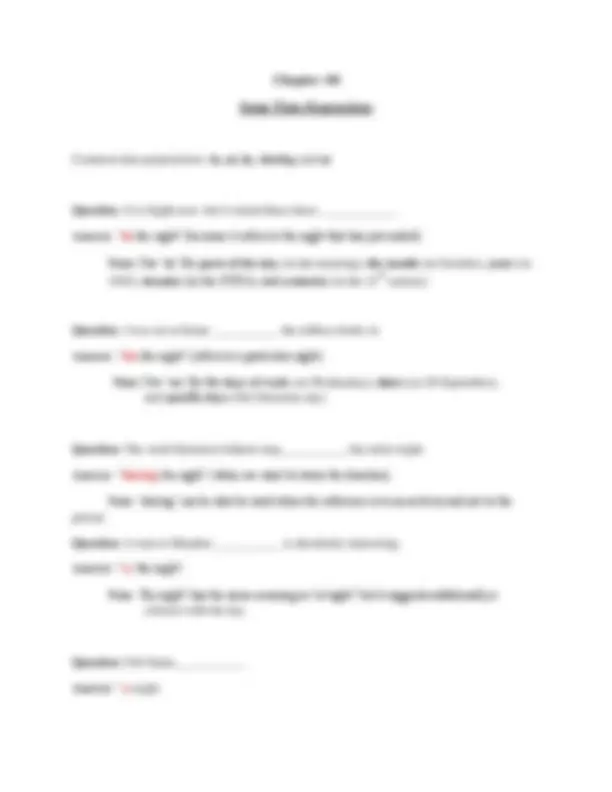
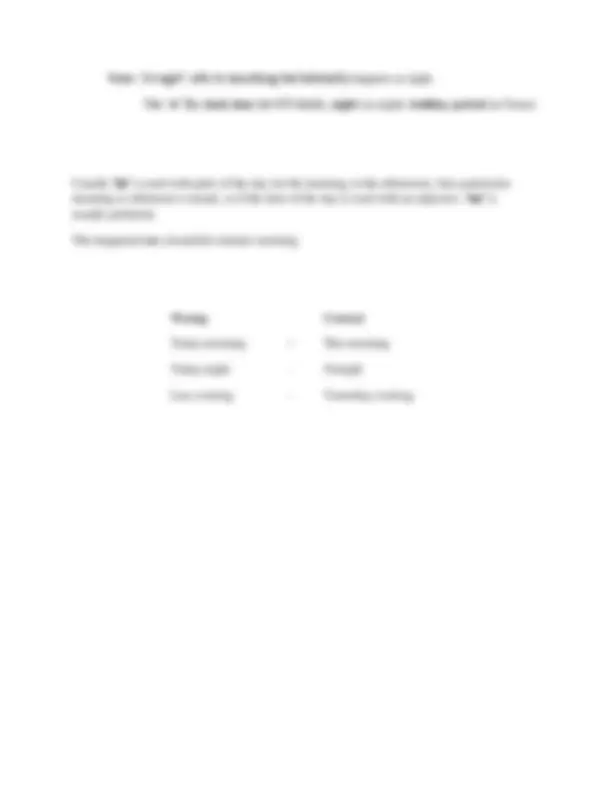
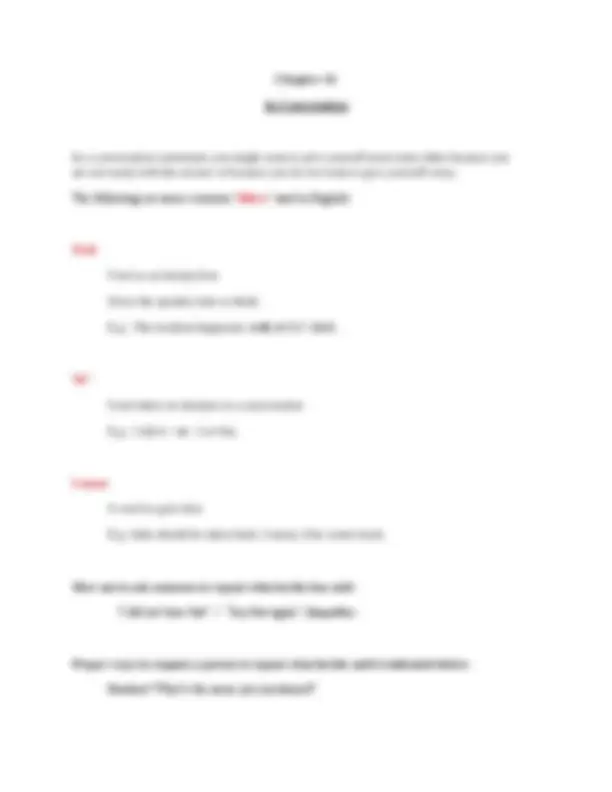
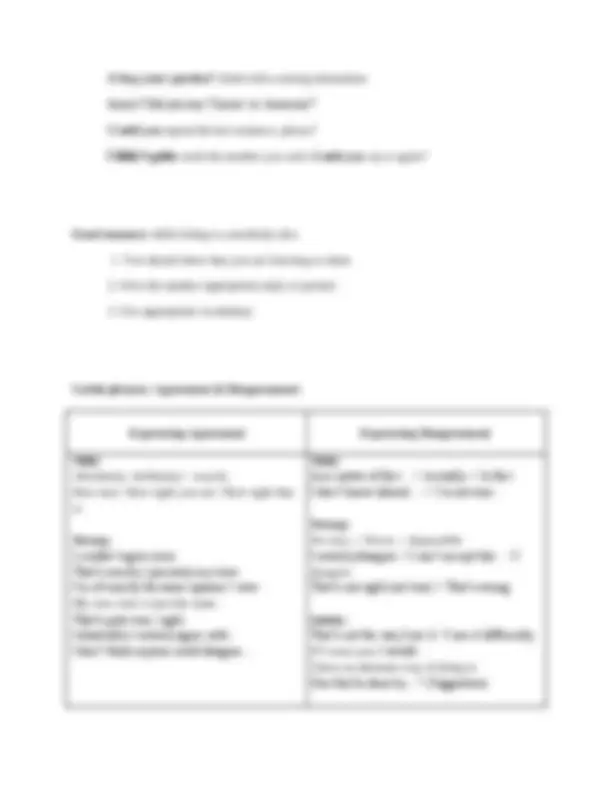
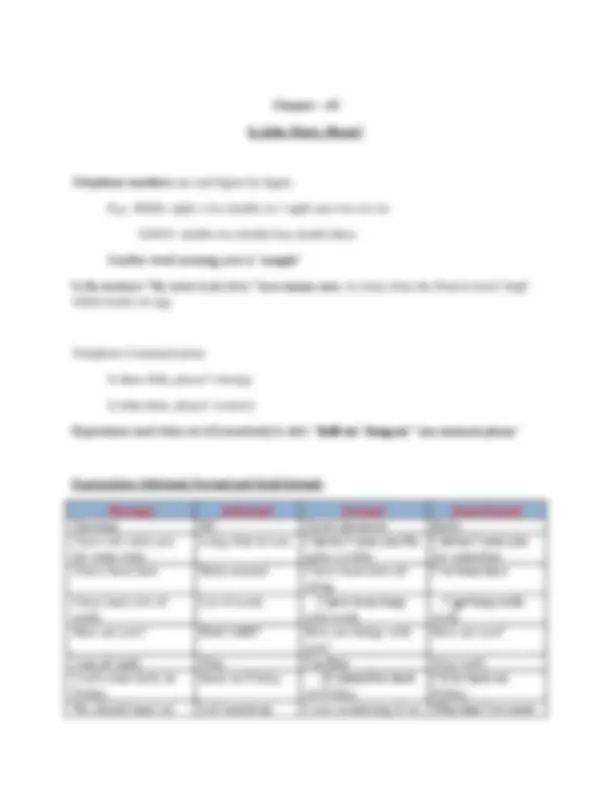
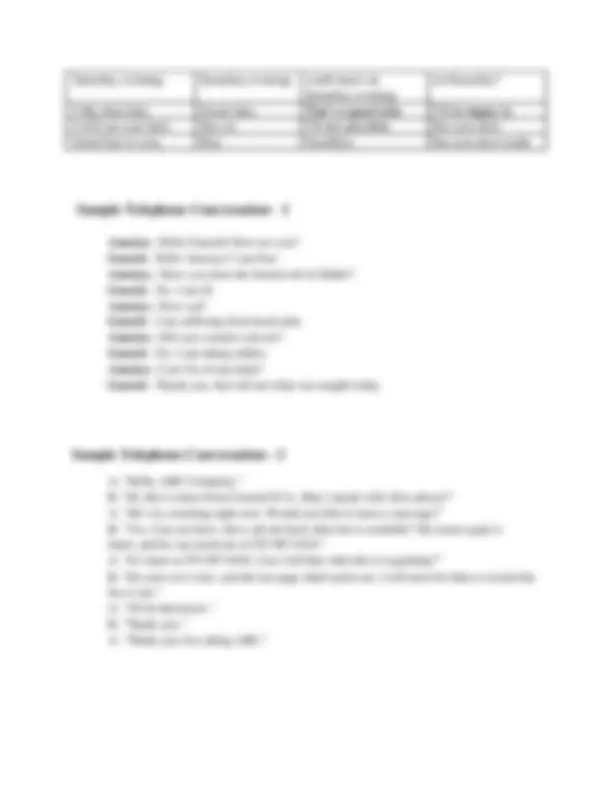


Study with the several resources on Docsity

Earn points by helping other students or get them with a premium plan


Prepare for your exams
Study with the several resources on Docsity

Earn points to download
Earn points by helping other students or get them with a premium plan
Community
Ask the community for help and clear up your study doubts
Discover the best universities in your country according to Docsity users
Free resources
Download our free guides on studying techniques, anxiety management strategies, and thesis advice from Docsity tutors
These notes are help you to win the exams related to business.all the questions are included.
Typology: Exams
1 / 120

This page cannot be seen from the preview
Don't miss anything!





























































































(Subject – Noun Part) (Predicate–Verb Part)
(Enlargement) (Extension)
Knowledge of figure of speech helps in writing an effective sentence
Use passive voice only if there is a real need.
Prepositional Phrase - Prepositional phrase is a series of words made up of a preposition and its object. The object may be a noun, pronoun, gerund or clause. A prepositional phrase functions as an adjective or adverb.
Eg: The boy with him is his son.
The store at the corner sells sandwiches
Finite and Non-Finite verbs
Eg: be, being , been
Bare Infinitive: Play To Infinitive: Toplay
Present Participles: Playing Past Participle: Played
CHAPTER- Clauses
CHAPTER-
NOUN CLAUSE
A noun clause is a dependent clause that does the function of a Noun in a sentence.
(Noun Phrase)
CHAPTER- 4
ADVERB CLAUSE
An adverb clause is a dependent clause that does the work of an adverb in a sentence.
Types of Adverb Clauses
CHAPTER -
THE RELATIVE CLAUSE
Relative clauses are clauses starting with the relative pronouns who, that, which, whose, where, when. They are most often used to define or identify the noun that precedes them.
Defining Relative Clause : A relative clause which identifies the noun it qualifies is a defining relative clause. The removal of a defining relative clause will collapse the whole sentence as it is an integral part of the sentence. It is also called a restrictive / essential relative clause.
E.g.: The woman who supplies milk is moving out.
Non Defining Relative Clause: This relative clause merely imparts information. The removal of a non - defining relative clause does not affect the structure of a sentence. E.g.: The elephant, which is largest of all land animals, is found in Asia and Africa.
CHAPTER -
TYPES OF CONJUNCTIONS
A conjunction is defined as a word or word class that connects words or constructions.
Co-ordinating Conjunctions : Used to connect two sentences of equal rank
Subordinate Conjunctions : Used to connect one main idea to a dependent idea TIME (when, as soon as, before, after), PURPOSE (in order that, so that),
CONDITION (if, unless, that), CONCESSION (though, although), REASON (because, since, as), MANNER (so far as, as if)
COMPARISON (than, no less than), RESULT (so… that)
Section – B
Word-Classes and Related Topics
CHAPTER - Understanding the Verbs
Physical Verbs – Definition and Examples Physical verbs are action verbs. They describe specific physical actions. If you can create a motion with your body or use a tool to complete an action, the word you use to describe it is most likely a physical verb.
The physical verb examples in the following sentences are in bold for easy identification.
Let‘s run to the corner and back. I hear the train coming.
Mental Verbs – Definition and Examples Mental verbs have meanings that are related to concepts such as discovering, understanding, thinking, or planning. In general, a mental verb refers to a cognitive state.
The mental verb examples in the following sentences are in bold for easy identification.
I know the answer. She recognized me from across the room. Do you believe everything people tell you?
States of Being Verbs – Definition and Examples Also known as linking verbs , state of being verbs describe conditions or situations that exist. State of being verbs are inactive since no action is being performed. These verbs are usually complemented by adjectives.
The state of being verbs in the following sentences are in bold for easy identification.
I am a student.
Regular Verbs These are verbs which form the past and past participle by the addition of the suffix – d/-ed as laugh + -ed = laughed love + -d = loved Irregular Verbs Irregular verbs are those that don‘t take on the regular spelling patterns of past simple and past participle verbs but have a change of internal vowel for the Pst and past participle.
Basic Forms of Verbs
Infinitive Simple Present - ing form Simple past - ed/-en/-t form
Love love loving loved loved
Walk walk walking walked walked
Give give giving gave given
Take take taking took taken
Dream dream dreaming dreamed/-t dreamed/-t
ASPECT: is a verb form (or category) that indicates time-related characteristics, such as the completion, duration, or repetition of an action.
The two primary aspects in English are the perfect (sometimes called perfective ) and the progressive (also known as the continuous form). As illustrated below, these two aspects may be combined to form the perfect progressive.
In English, aspect is expressed by means of particles, separate verbs, and verb phrases.
Perfect Aspect The perfect aspect describes events occurring in the past but linked to a later time, usually the present. The perfect aspect is formed with has , have , or had + the past participle. It occurs in two forms:
Perfect Aspect, Present Tense: "History has remembered the kings and warriors, because they destroyed; art has remembered the people, because they created." Perfect Aspect, Past Tense: "At fifteen life had taught me undeniably that surrender, in its place, was as honorable as
resistance, especially if one had no choice."
Progressive Aspect The progressive aspect usually describes an event that takes place during a limited time period. The progressive aspect is made up of a form of be + the -ing form of the main verb.
Progressive Aspect, Present Tense: "She's loyal and is trying to wear her thin flippy hair in cornrows." Progressive Aspect, Past Tense: "I was reading the dictionary. I thought it was a poem about everything."
The Difference Between Tense and Aspect "Traditionally... both aspects [perfect and progressive] are treated as part of the tense system in English, and mention is made of tenses such as the present progressive (e.g. We are waiting ), the present perfect progressive (e.g. We have been waiting ), and the past perfect progressive (e.g. We had been waiting ), with the latter two combining two aspects. There is a distinction to be made, however, between tense and aspect. Tense is concerned with how time is encoded in the grammar of English, and is often based on morphological form (e.g. write, writes, wrote ); aspect is concerned with the unfolding of a situation, and in English is a matter of syntax, using the verb be to form the progressive, and the verb have to form the perfect. For this reason combinations like those above are nowadays referred to as constructions (e.g. the progressive construction , the present perfect progressive construction )."
"be" as a full verb
The verb be can also be a full verb. In this case, it's not followed by another verb. If be is used as a full verb, we do not need an auxiliary in negative sentences or questions.
positive sentence : They are fifteen years old.
negative sentence : They are not fifteen years old. question : Are they fifteen years old?
2."Do" as an auxiliary verb
Used in negative sentences / questions: to form negative sentences or questions using ‘do’ as a full verb, another ‘do’ is needed as an auxiliary.
negative sentence: She doesn'tdo her homework every day. I do not know the truth. She doesn't agree with me. They didn't arrive here yet.
question: Does she do her homework every day? Do you want to have another one? Did he finish his homework? Do we need to keep going straight?
The full verb "do"
As a full verb we use do in certain expressions.
positive sentence: She does her homework every day.
3."Have" as an auxiliary verb
Used in perfect sentences:
I have been following you for a mile. We have done a lot so far. She had been queen of the town.
"have" in positive sentences
As a full verb have indicates possession. I have a car. "have" in negative sentences and questions I do not have a car.
Permission: can, could, may Can we come in? Could we possibly stay at our flat? Staff may take their break between 12 and 2. (written ) May I sit here? (formal)
Prohibition: cannot, may not, must not You mustn’t tell her anything. You can’t get up until you‘re better. Crockery may not be taken out of the canteen. (written) You must not begin until I tell you. (formal)
Obligation: have (got) to, must All visitors must report to reception on arrival. (written) I must get that report finished today. Do you have to write your name on the form? She had to throw the burnt cake away. You will have to wait, I‘m afraid.
No necessity: don’t have to, shouldn’t have to, don’t need to You don’t have to pick us up. We shall take a taxi. They didn’t have to go through customs. You shouldn’t have bothered making lunch. He didn’t need to have any fillings at the dentist‘s. They needn’t have waited.
Advice and criticism: ought to, should Ought we to/ should we write and thank him? She ought to /s hould go out more often. You ought to have/should have gone to bed earlier. You shouldn’t borrow the car without asking. I ought to/should go on a diet. I ought to have / should have asked her first.
Assumptions and deductions: will, should, must, can’t That will be James – he is often early. The book should be interesting. There mustbe a leak. You must have dialed the wrong number. You can’t have finished already!
Requests: can, could, will, would Can you pass me the dictionary?
Could you help me with my translation? Will you buy me an ice cream, Dad? Would you type this letter for me, please?
( Could and would are more formal than can and will .)
Offers and suggestions: shall, will Shall I do the washing? Shall we go now? I will take you to the airport.